Kristen Lamb's Blog
September 22, 2025
Forgiveness: Everyone Loves a Good Redemption Arc

Forgiveness is arguably one of the hardest concepts for us to wrap our brains around���which might be why we���re so fascinated by it. What is forgiveness, really? Who is redeemable? What does restoration look like?
Last fall, I wrote about a universal emotion: Schadenfreude���Misfortune, Revenge, Justice & Catharsis. It���s not hard to feel a little thrill when ���bad��� people get what���s coming. In fact, revenge is one of the most common tropes in our favorite stories.
From Edgar Allan Poe���s The Telltale Heart to Kathryn Stockett���s The Help, audiences rarely feel satisfied until there���s some form of comeuppance.
Yet there���s another kind of story we might love even more: the redemption story.
That���s the beauty of fiction. Life is messy and relationships are hard. Stories not only give us a vehicle to make sense of a crazy world, but they are critical for training our moral imagination. It’s why we tell fairy tales, read bedtime books, and pass down parables.
Many of our earliest lessons in ���people-ing��� came through allegory.
A tortoise and a hare show us what persistence looks like in practice. Green eggs and ham feel absurd until we understand context. When Horton hears a Who, we see that every voice matters. From sharing to sacrifice, stories model the way forward���if we let them.
Here���s the funny thing: we never grow out of loving stories. And that���s a very good thing.
Forgiveness in Story
As I just mentioned, there may be only one kind of story we love more than a ���just desserts��� tale: the redemption story. And nowhere is this clearer than in the redemption arc.
The irony is that a redemption arc only works if the character starts out awful. In fact, the more vile the character, the more we LOVE them once they finally see the light.
If Melvin Udall had been anything other than a misanthropic nightmare, As Good as It Gets would have collected dust instead of Oscars. The magic is in watching him evolve���from a miserable, self-centered, isolated hermit into a man who can love and care deeply for those around him. And when that happens, we cheer.
He begins alone and broken, and ends surrounded by loved ones and a renewed sense of humanity (his own and others���)���and we are so here for it!
From The Joy Luck Club to Finding Nemo, stories provide a pattern for what forgiveness looks like and how to maybe even bring some of that redemption arc into our own lives (Re: Redemption: Can All Characters Be ���Saved���?).
How can forgiveness in story shine a way for us to be better at doing it in life? Either asking for it or giving it? Redemption stories captivate us, but they also beg a harder question: is forgiveness simply forgetting the past, or is it something far more radical?
What IS Forgiveness?
Here���s the thing: half the battle with forgiveness is realizing what it isn���t .
As writers, we are keenly aware of the mercurial nature of words. “Cool” can be a temperature on the car AC or a word we toss around to let others know we like something. Words can twist and turn and gain or lose meaning over time.
Few words can be twisted more than…forgiveness.
In our minds, often “forgiveness” is this notion that we just reset the board. Everything is in the past. Forgive and forget, right?
WRONG.
Not a get-out-of-jail-free card ��� consequences can still stand. So if forgiveness isn���t forgetting, excusing, or fast-forwarding���what is it, then?
Welcome to the Process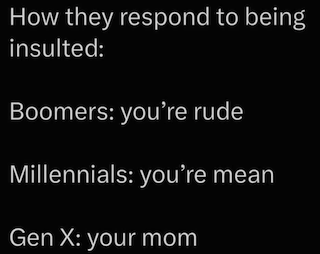
Personally, I think we���ve become a culture out of tune with our emotions.
As a Gen Xer, I���ll take part of the blame. We were a lost generation of latchkey kids. Our Boomer parents were just trying to survive, feeling like failures because they couldn���t recreate the ���Golden Age��� they���d been handed���an era probably gilded more with asbestos and sadness than gold. We inherited their brokenness and passed it on to our kids, just in a different flavor.
Our parents gave us nuclear strike drills. It was their way of keeping us ���safe������or at least confused enough to be calm. In a world spinning out of control, they handed down what little they had. And, like generations before, we overcorrected. They raised us to be stoics���the Red Dawn Generation. We told ourselves we didn���t care and wanted to be left alone���until we had kids.
Then we lost our minds.
Suddenly everything had a Lisa Frank neon glow. We went to every game our parents missed. We sewed the costumes, baked the cookies, and even invented something as FRIGGING DUMB as the ���Participation Trophy.��� Everyone was special, every feeling mattered, and everything had to stay positive.
Like the cereal of our youth, we drowned our kids in sugar���only this time it was sugar-coated emotions.
It took a kids’ movie (Inside Out) to remind us that anger is actually a useful emotion. Of course, we overdid that too. The pendulum swung from a Stepford-smile ���everything is fine��� to raging about everything. Neither extreme is healthy. Both are denial.
The first step in forgiveness is giving ourselves permission to feel, even when the feelings don���t make sense. Forgiving someone doesn���t mean we won���t feel anger, hurt, or resentment. And being forgiven doesn���t guarantee we���ll feel absolved or at peace.
Bitterness and guilt are just two sides of the same coin.
Emotion is fuel���but like all fuel, it can either move us forward or burn everything down.
The Problem of Pain
It hurts. Simple as that. You���d think it would be obvious, but humans can be remarkably slow on the uptake. Since we don���t like hurting, we���ll avoid confrontation at almost any cost. If we���re the injured party, we steer clear of the people who wounded us.
Instead of doing the meaningful work, we gloss over the hurt, slap on a smile, and insist everything is ���fine��� when it isn���t. Meanwhile, the bad feelings stew and ferment. Super adult, right?
The irony is, the other person may be completely oblivious that they tromped through our emotions like a toddler playing Godzilla in Lego Land. Doesn���t matter. In our minds, we���re convinced they knew exactly what they were doing.
On the flip side, if we���re the ones who need forgiving���well, we don���t want forgiveness so much as ���understanding.���
See, if you understood that we were tired, in pain, late, sick, hungry���or gassy���when we acted like a complete horse���s butt, you���d see we weren���t really wrong at all. In fact, you just misunderstood. That makes it all better, right?
���Right?
Wrong.
The first step in forgiveness is admitting the wrong.
If we���re the one injured, then we need to face that. Look at the wound, triage it, and make a plan to forgive. If we���re the one in need of forgiveness, we need to accept that���even if we felt totally justified or believe we did nothing wrong���someone else is hurting because of our actions (or inaction).
We might not feel the crushing injustice, but they do. Isn���t that exactly what we want when the shoe is on the other foot?
Feeling Feelings is Okay but Not Everything
This is where most of us get stuck. When someone hurts us, even thinking about forgiveness feels like we���re about to puke in our shoes. So we do one of two things: we stuff it airtight or we spew it nonstop.
Enough.
It���s far easier to let go once we understand that forgiveness is an act, not a mood.
In real life, there���s no magical moment where we forgive and���cue the orchestral swell���we���re suddenly living in a warm-and-fuzzy montage. You want that? Go to the movies. Stories can model real life, but they aren���t real life.
Just like we can���t wrap up a murder investigation in 90 minutes, we can���t heal wounds instantly either. If we expect emotions to rise, fall, flare up, vanish, then come roaring back, we won���t be blindsided.
Yes, if someone hurts us badly, we���re going to feel it for a while (and vice versa).
A Parable on ForgivenessI didn���t fully grasp forgiveness until I heard this story.
There was a monk whose job was to ring the church bells every day. In the course of life in the monastery, a fellow monk deeply wounded him. No matter how many times he went to confession, he couldn���t look at the offender without feeling anger and pain.
Finally, distraught, he asked the parish priest: How can I say I���ve forgiven when I still feel so much anguish?
The priest answered with a question:
���When you ring the bells, does the sound stop the instant you let go of the rope?���
The monk frowned. ���Of course not.���
���It echoes, doesn���t it?���
���Yes.���
���But eventually the sound grows fainter and fainter until it���s gone, right?���
���Yes.���
The priest smiled. ���It���s the same with forgiveness. Your fellow monk rang your bell, and you���ll hear it for a while. But forgiveness is the decision to let go of the rope.���
Every time we ruminate, gossip, backbite, or replay the injury, we���re yanking that rope again, keeping the sound alive. Forgiveness isn���t a feeling. It���s a choice. We decide to let go���because we���re the only ones who can.
Forgiveness and Restoration
These are two entirely separate events ��� and glossing over that fact is dangerous.
Forgiveness is a decision. It���s the mental shift to let go of the rope. Period. We do it for our own sanity, because if we don���t, Hell���s bells will keep ringing in our heads. Enough ringing will drive anyone mad.
Restoration, however, is another matter entirely.
We are under no obligation to rebuild a bridge someone else torched. Nor do we have to hand out ���bridge-building permits��� to people who���ve proven unsafe. Sometimes, relationships can���t be restored because doing so would be unwise���or downright dangerous.
Think of a battered spouse. She might believe with everything in her that she can save the relationship if she just tries hard enough. But if the partner keeps escalating, the day will come when she realizes: If I stay, I will die.
So she leaves. She gets safe. But she still needs to forgive. Because if she doesn���t, the poison of bitterness will seep into her, and into every relationship that comes after.
That doesn���t mean she has to go back. No one in their right mind would say she hadn���t forgiven if she took out a protective order or never spoke to him again. He simply isn���t safe.
Toxic people want us to believe forgiveness means saying, “What you did was fine. Let���s be friends again!”
No.
Forgiveness is for us. It���s so we can heal, move forward, and build something better���without dragging yesterday���s rotting garbage with us. But don���t confuse forgiveness with absolution. It doesn���t erase consequences. Forgiving someone doesn���t mean they skip the sentence���it means we refuse to let their actions keep us chained to bitterness.
Forgiving and Forgetting
���Forgetting��� is the part of forgiveness people most often skip���or butcher completely.
***Wow, we really do suck at this.
Forgetting doesn���t mean life is a video game where we hit RESET and go back to the last SAVE point. Memory matters. In fact, it���s wisdom. Only a fool allows the same injury over and over. Being a doormat isn���t divine.
But here���s the rub: have you ever been in a relationship where, every time conflict flares, the other person unrolls a scroll of every wrong you���ve ever committed? Did you feel forgiven?
Or maybe you���ve been on the other side���feeling generous for ���forgiving,��� then dragging out the record book the moment things get rough. That���s not forgiveness. That���s stockpiling ammo for the next fight.
The hard truth is this: once something is forgiven, it must be released.
Let. Go. Of. The. Rope.
It���s okay to get angry. It���s not healthy to stay angry. If we cling to the rope too long, it won���t just hold us back���it will become a snare. Or worse, a noose.
If Stories Forgave Like We Do
The tales we love would collapse if their characters forgave the way most of us do in real life.
Imagine if Simba went back to Pride Rock, ���forgave��� Scar, and then reminded him of Mufasa���s death at every family meal. That���s not a redemption arc���it���s a sitcom with no laugh track.
Or what if Elizabeth Bennet married Darcy, only to bring up every slight, insult, and misunderstanding for the rest of their days? Pride and Prejudice would be less classic romance and more reality TV.
Even Melvin in As Good as It Gets would never have found love if he���d clutched a grudge ledger. The movie only works because he lets go���because he changes.
Stories demand true forgiveness. Characters can���t evolve if they���re chained to past injuries. If they could, the plots would grind to a halt, and the redemption arcs we crave would be dead on arrival.
And so it is with us. If stories can���t move forward without forgiveness, neither can we.
Grudges keep us trapped in reruns���same plot, same conflict, same ending. Forgiveness, on the other hand, gives us new material. It doesn���t erase the past, but it frees the future.
We forgive not because it���s easy, or because the other person ���deserves��� it, but because carrying the rope keeps us stuck in the wrong story.
Letting go is the only way to write a better one.
What Does Forgiveness LOOK Like?
At the end of the day, forgiveness isn���t neat or cinematic. It���s clumsy, awkward, and sometimes downright painful. But stories remind us it���s possible. They give us a model, a light in the dark, showing us what love and forgiveness look like when lived out.
Writers, in many ways, are the torchbearers of this process. Through the arcs we create���through villains redeemed, grudges released, and broken people finding their way back���we hand our readers a vision of what could be. We remind them that love is more powerful than bitterness, and that forgiveness, though rarely easy, is always freeing.
Because without forgiveness, stories stall. And so do we.
Stories don���t just entertain, they teach us how to be human. Writers sketch the messy, awkward maps of forgiveness: how people say sorry, how they stumble, and how they finally let go.
That���s the small miracle of a redemption arc ��� it shows that even the meanest bell can be quieted if someone decides to loosen their grip. We forgive not because the past is erased, but because we choose a future that isn���t chained to old injuries. If stories can do that for characters, maybe they can do it for us too.
So maybe that���s the real gift of story: not to entertain us, but to show us the road ahead. To remind us that though the bell may still echo, we can choose to let go of the rope���and in doing so, step into a better story.
What are YOUR Thoughts?What about you guys? I���d love to hear your thoughts.
What���s your favorite redemption story���book, movie, or show���that really showed forgiveness done right? Have you ever had one of those moments where forgiveness wasn���t about ���feeling good,��� but more about finally letting go of that rope? Has a story ever taught you more about forgiveness than real life managed to?
The post Forgiveness: Everyone Loves a Good Redemption Arc appeared first on Kristen Lamb.
September 17, 2025
War of the Worlds 2025: Is AI Ruining Storytelling?
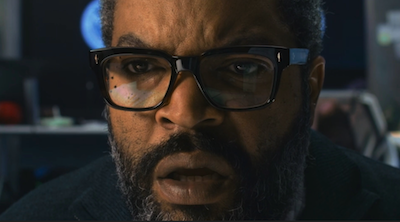
War of the Worlds 2025. What do I say? What can be said? Other than Orson Welles is probably going to start haunting Amazon warehouses or that it was the pandemic…and Ice Cube really needed the money.
If you haven’t yet seen War of the Worlds 2025, take the challenge. I merely recommend that you don’t watch alone, because this movie is so bad it is hilarious. And we could all use a laugh these days, right?
Sometimes the worst movies are the best teachers. In this post, we shall eviscerate dissect Amazon���s quietly released disaster, War of the Worlds 2025 ��� and what it reveals about POV, the fifth wall, and how technology reshapes the way humans tell (and consume) stories.
For those of you who have been long-time followers of this blog and have read my books, I have dedicated God only knows how much time dissecting the ways technology impacts humanity. Not only does it shift cultural norms and attitudes, technology goes deeper.
It literally alters brain structure.
With every technological advancement, new art forms emerge and tastes evolve. Who wants to read War and Peace when you could watch your favorite streamer shoot demons?
We have all born witness to the vast changes just since the internet and social media swept the globe. In 2011, I couldn’t bribe writers into being on-line. Now? We all struggle to stay OFF.
Suffice to say, all of us know that AI is going to alter the storytelling landscape forever. How will it do that? What are the limitations? Are writers still even necessary?
Short answer is yes, AI will impact writers because…
…it cannot help but impact audiences.Limitations? The human touch still required and AI (currently) still has a hard limit on how much it can learn/remember/process. Which is probably why Microsoft signed a 20 year solo agreement for all the power from a freshly renovated Three Mile Island.
***Because billionaire tech giants partnering with nuclear energy plants to power sentient computers is NEVER problematic.
So how did a serious movie about aliens leveling the Earth end up so unintentionally funny? I believe it was—in part—because the creators were trying to be serious. Imagine the creators of Sharknado making Sharknado…unironically. War of the Worlds 2025 takes itself so seriously and that just makes the laughs even better. Yet, it was more than just that.
They got BOLD and tried a new technique!
They Broke the Fifth Wall (and the audience’s brains)In my professional opinion, a large part of what derailed this as a serious movie stemmed from the choice of POV. Point of view is a POWERFUL narrative tool that can totally shift the story tone. We’ve discussed this many times.
Perspective: POV Can Revive or Ruin a Story
Deep POV: What IS It & Why Do Readers LOVE It So Much?
We can take the SAME story, change the POV and it is totally different. YOU is a nail-biting suspense from the perspective of the love struck bookstore nerd. Shift the POV and we call it Dateline.
And this is exactly where War of the Worlds 2025 jumped the shark.
I “get” the studios wanted to give audiences a “modern” War of the Worlds for a modern world. To do this, they decided to take a gamble and hired the edgy-outside-the-box producer Timur Behmambetov to give an old story a fresh angle.
Yeah.
For context, Behmambetov has been trying to make a micro-sub-genre within the found footage world—Screenlife—work for sooo long. And bro finally got his chance!
Screenlife is basically found footage���s awkward cousin ��� instead of handheld cameras, everything happens on a laptop screen (E.g. Unfriended).
So why did War of the Worlds 2025 suck? Other than the obvious answer that the scariest thing in horror isn���t aliens ��� it���s ninety minutes of Zoom meetings.
Because breaking the fifth wall has a cost.
Many of you probably know about the fourth wall. When actors break the fourth wall, they turn from the stage and address the audience. So what is the fifth wall you might ask?
WE are the audience behind the audience. The audience becomes part of the stage. Clear as mud, right? Now y’all know why this is a tar baby to write.
In the movie, Ice Cube stars as a grumpy Gen X analyst working on a Sunday alone at The Department of Homeland Security. When Ice Cube isn’t spying on his daughter, he is spying on everyday citizens with eerily omniscient powers. Homeland is on the hunt for a hacker known as The Disruptor…cuz it’s spooky.
Sounds “hacker-y.”
Suddenly, superstorms break out all over the globe and meteors crash through the atmosphere smashing into cities, and punching more holes in this plot than my teenager’s socks. We (the audience) watch the alien invasion, the “drama”, the chase, the suspense…from a screen. NINETY minutes of Zoom meetings, Facetime, texts, YouTube and stock news footage clips.
*groans*
Was War of the Worlds 2025 onto…Something?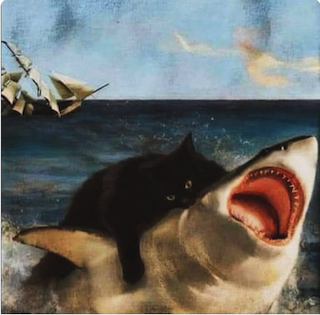
Just because War of the Worlds fumbled the play, does NOT mean the movie didn’t reveal something we storytellers can learn from. Remember, they made this movie almost five years ago.
What is now more popular than ever?
Streamers.
In my day we killed the aliens ourselves. With our own plasma rifles and sticky grenades! These kids today watch other gamers kill the aliens! What in TARNATION?
Remember earlier I said technology reshapes the brain and changes our tastes? In 2025, I actually think Screenlife would be viable with the right story.
We humans genuinely don’t know what we like…or what we may eventually grow to like. Which is why being a writer is equal parts exciting and terrifying.
For instance, who would have ever believed found footage would have even been a thing until The Blair Witch Project? Which a lot of people hated until Paranormal Activity preserved what was excellent about the idea…and simply removed the need for Dramamine.
Which makes my point.
Found footage immerses us SO MUCH it is excellent for horror. But, add in a FIFTH wall, and there is enough emotional distancing to laugh.
A LOT.
Technology Shapes StorytellingYes, throughout history, technology has shaped and reshaped storytelling (VIDEO GAMES anyone?). War of the Worlds 2025 revealed both the limitations and opportunities of storytelling via digital screens.
As streaming and parasocial entertainment (e.g., Twitch, YouTube, VTubers) rise, using ���fifth wall��� techniques could theoretically work, but execution must account for audience psychology.
Audiences will always crave novelty, but poorly executed innovation alienates rather than immerses. This is where human intuition is priceless.
Sure AI can create the “perfect” story from a technical perspective, but we humans love messy. Perfect is boring and—especially after the Terminator movies—we aren’t too thrilled about our computers being emo.
Despite technical ambition, War of the Worlds 2025 proved that human intuition, humor, and risk-taking are essential for meaningful storytelling. What can creators specifically take away?
Clarity of medium matters: New formats (like Screenlife) should enhance, not obstruct, emotional engagement.
Audience psychology is central: Too much distancing results in detachment; balance immersion with accessibility.
Innovation requires iteration: Even failed experiments reveal future opportunities ��� this format may thrive in comedy or parody rather than drama.
Technology alone isn���t enough: Tools evolve, but audiences still rely on writers and storytellers to make sense of them.
In the End….For all its flaws, War of the Worlds 2025 is a reminder that even failed experiments push the boundaries of storytelling.
Technology will continue to reshape how we tell and consume stories, but it���s human intuition, humor, and risk-taking that make them matter. And that is something no algorithm���or alien���can replace.
The movie showed us what doesn���t work, hinted at what could, and gave us comedy gold along the way. Maybe Orson Welles is haunting Amazon after all, but if so, at least he���s laughing.
What are your thoughts?Do you think AI will ever nail messy, human storytelling���or will it always feel a little ���too perfect���? What���s one new storytelling trend (good or bad) you���ve noticed since the pandemic? What���s the worst ���so-bad-it���s-good��� movie you���ve ever seen? Do you think Screenlife films (everything on a computer screen) could ever actually work, or are they doomed to flop?
Since I could never do justice to just how bad this movie is, this is the video that convinced me to take a chance and watch. Pointlesshub is one of Spawn’s great finds. It’s a bit long, but it’s hilarious and breaks apart the story just brilliantly! But don���t take my word for it ��� grab some popcorn, watch the roast, and come back here to tell me if you survived.
The post War of the Worlds 2025: Is AI Ruining Storytelling? appeared first on Kristen Lamb.
January 31, 2025
Are We Too “Domesticated” to Write Great Stories?

Are we too “domesticated” to write truly great stories? This might seem like an odd question, but bear with me. I’ve been incredibly blessed over the course of my life to travel all over the world. While I did get to check out some of the resorts, my favorite travel stories seem to always involve places no one in their right mind would go…on purpose.
Note I DID qualify with “in their right mind.”
Like the time I lived in Syria, went out into the desert to look at ruins but failed to pack enough water *face palm*. This ancient Bedouin shuffled past me wearing a huge glass bottle full of water…that he was selling by the sip.
I have no shame.
I bought the WHOLE BOTTLE.

Or when I was on the Mexican border and had to go to the ladies’ room. As I am sitting there…a chicken just walks in and decides to be my friend. Still funny.
In the jungles of Belize, I spent all day wielding a sledgehammer to pull up a sidewalk at a school (humanitarian mission). The entire day it rained on me. I spent seven hours slogging through mud in the rain carrying buckets of cement, ripping up rebar, and patrolling—machete in hand—for snakes.
End of the day? All I wanted was a shower. I strip down to everything but my seriously stupid lime green flip flips with big goofy flowers on the toes, turn on the water…and SCORPIONS RAIN DOWN OUT OF THE SHOWER CURTAIN.
Apparently goofy flower flip flops make an excellent weapon.
Why are these some of my favorite stories? Especially since none of them cast me in a particularly good light. Whether it is me being too dumb to pack WATER in the SYRIAN DESERT or naive enough to not watch for SCORPIONS in a JUNGLE, there is a common thread.
I was far too domesticated.
Domesticated Writers
There is a strange cognitive distortion we can all experience being a part of First World living. We really don’t know what it is like to worry about most of that really important stuff at the base of Maslow’s Hierarchy of Needs.
I mean FOOD? Me? Hunt? *hair flip* I don’t even know how to track tacos. Are burritos migratory? Do pizzas travel in packs?
***If you know, please answer in the comments.
Please understand. I am seriously grateful that I am an American, that I live in a wonderful country and enjoy incredible blessings. Yet, how often do we take these blessings for granted? How much can modern life lull us into a form of sensory sleepwalking that make our writing come across as dull, colorless or inauthentic?
Case in point.
One of my favorite classes to teach was Beyond Bulletproof Barbie. This class covered combatives (various forms of martial arts), guns (everything from pistols to long arms), and bladed weapons. I enjoy teaching it because, while I “get” we write fiction and can’t be 100% accurate, a handful of really great details truly enhances authenticity.
When reading any fight scene, I can almost instantly tell a writer who has a) never been punched or b) has never thrown a punch.
How?
Easy.
Punching suuuucks. I know! News flash. Either way. Honestly. Sucks to be puncher or punch-ee. And I get that it is easy to believe the person doing the punching gets the better of it but no. FUN FACT! Unless one is a professional fighter, odds are pretty good you will break or dislocate something in your hand.
Am I suggesting we start Writer Fight Club? No…because I can’t talk about Writer Fight Club. Also, pain sucks. But, I do believe the answer is simpler.
Domesticated Distortion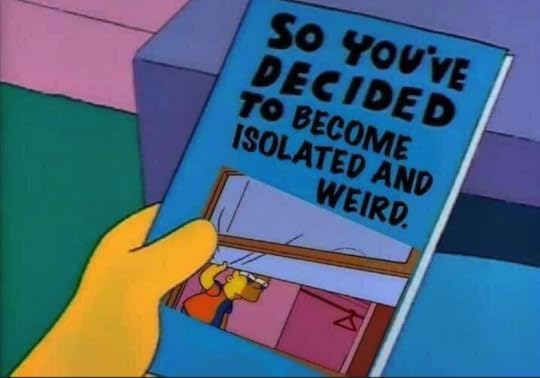
Sometimes, just recognizing we have a blind spot is a great start. This is where, first of all, being a prolific reader will be seriously helpful. We can only do and experience so much, so why not rely on the experiences of others? The more we read, the deeper creative well we draw from.
I have no idea what it is like to live in the aftermath of a war (and pray I never do). But I can read works from people who have. I’m not a man, a child, a space alien, a battle hardened Marine, or a geriatric, but I can be all those things because I can use empathy and imagination. That said, empathy and imagination, like other writing muscles, need strength training.
If we believe we might be too domesticated, then how might we ratchet up the story intensity? I recommend practicing deep empathy. Try writing in Deep POV.
Refer to: Deep POV: What IS It & Why Do Readers LOVE It So Much?
Deep POV is not only a fantastic way to hook readers into the story experience at a whole other—visceral—level, but it will also help us be aware of our domesticated blind spots.
Try doing some short writing pieces on the same topic. Same story prompt but from as many different POVs as you can think of. Maybe change the setting, too.
Most of us tend to—at least in the beginning—write as ourselves. Hey, I did it! Still do. When they say “write what you know” then this is kind of a “no duh” thing right?
But can you take a story prompt then write from the perspective of someone who is NOT you? Empathy is a fantastic skill in life and in writing.
Experience Informs Perspective
We can take a simple scenario and do a fun thought experiment/writing exercise. Take our domesticated brains into a domesticated situation that suddenly is anything BUT.
There is a bodega on the corner of a major city. It’s late at night. There is an Uber driver, an elderly person, a young mother, and a juvenile delinquent. Someone decides to rob the bodega.Who is it? How do the others react? Who “saves” the day? Should it have been “saved” at all? Are things not as they might appear? Do we end up with an unlikely hero? An unintended tragedy?Could you write the story where each person is the robber and make us empathize with their motives? Note I said we had to empathize not agree. That is an important distinction. In life, we are all good, law-abiding citizens so cognitive dissonance like this stretches our brain muscles.
The key to having a reader empathize is to show who the character is and relay their why (motive).
Under normal circumstances, robbing a bodega is unacceptable. But great stories leave normal in the dust. Additionally, those around react correspondingly using their frame of reference and life experiences. They can help ratchet the tension in the story.
Say our would-be robber is the Uber driver. A half hour earlier, he picked up the Ride from Hell. Unfortunately for him, his fare took a page out of the noir classic Collateral and our poor Uber driver is actually a hostage, himself.
He has to hit a certain number of bodegas before midnight or his family will die.
That’s already a bad night, but what if the senior citizen is an ex-Green Beret and decides to be a hero? What if the teenager is actually a twenty-eight-year-old Vice officer? Or the young mother is actually part of the cartel and was there to collect extortion money from the owner?
What if the cashier just found out his wife was leaving him for his brother and they’d emptied all his savings. All he has left is this crappy job and he just can’t be pushed one…more…step.
We can make these people as benign or interesting as we want. There are plenty of everyday people who do extraordinary things—good and bad—with the right lever. Conversely, there are plenty of folks walking around who seem ordinary at first glance but are anything BUT.
Eg. Spies never look like spies unless it’s the movies.
Psst, neither do aliens.
This is where fiction becomes FUN.
Domesticated Imaginations
I know what it is like to get caught up in the humdrum of life. Whether it is the day job, the WIP that we have been working on for months, life, family, health issues. We can forget how important it is to shove ourselves out of our comfort zone to knock the dust off our imaginations.
Maybe you can do this in your own WIP. If you are stuck, pull out a supporting character and write an experience from their POV. When in a scene, think from all angles. Sight is the weakest of all the senses yet writers (in my experience) rely on it too much. Can we see if we can put ourselves even deeper into the scene? FEEL the cold, TASTE the heat, SENSE the danger?
What Are Your Thoughts?I know I was suffering from being too domesticated. After working from home for almost twenty years, I took a temporary job in November to get out of the house. You know you’ve been working at home too many years when you eat your lunch like you just served a dime in the pen.
It’s been a lot of fun and has gotten me out of my comfort zone, but the schedule has been a mess trying to fit it with homeschooling and other work. FINALLY it seems to be leveling off. I’ve been working in fashion marketing and the holidays was just BONKERS crazy and January is the start of a whole new year and and and and. LIFE.
BUT it really did show me how many experiences I’d forgotten about working on my own with only my imaginary friends to bug me. VERY different being in a corporate setting.
But I am still here. Still weird. Weirder by the day. So any of y’all have tips on hunting those burritos?
What are our thoughts? Do you think maybe you hold back too much in your work sometimes? Maybe you could push a little harder but have gotten out of the habit?
Also, feel free to drop a try at the bodega story in the comments. I always love seeing y’all show off!
The post Are We Too “Domesticated” to Write Great Stories? appeared first on Kristen Lamb.
November 13, 2024
Fortitude: Dream, Do, Then Keep on DOING Day After Day

Fortitude—enduring the tired, tedious and unremarkable chores—is what makes the difference between those who dream and those who do.
Why am I talking about this? Because recently I saw some quote scroll past on social media. It was something (of course) posted by one of those super happy “life coach” people.
Though I’m certain the quote was meant to inspire, it hit a sour note with me. It seemed dismissive of the pain, sacrifice and—yes, suffering—of those willing to dream, and then stick to that dream. It bypassed the fortitude necessary for success.
I don’t recall the quote’s exact wording (they’re all so similar), but the saccharin essence was the same. Apparently, if you don’t LOVE every single moment of what you’re doing, then maybe you don’t have the right career.
Keep searching! Dream! You have a right to be HAPPY! If it isn’t making you HAPPY, then MOVE ON!
See, writing—much like any worthy undertaking—comes part and parcel with a lot of drudgery and loads of stuff we’d rather not do.
Fortitude & Learning Curve Drudgery��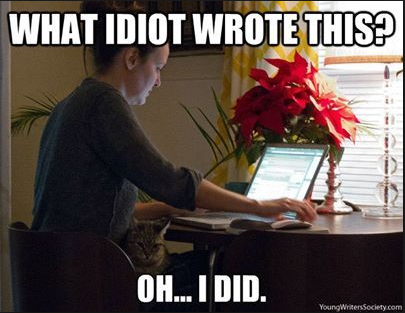
A lot of folks believe that just because they’re proficient in their native language, they are then automatically qualified to write amazing fiction. Yeah…no.
Not judging at all. I used to be one of those people. I had zero concept how ridiculously hard it was to craft a readable story, let alone a good one.
Writing a novel that could span anywhere from 50K to 150K words (depending on genre) that manages to grab then hold a reader’s interest? AHHHH! Balancing plot points, plot arc, character, dialogue, scene and sequel, A-lines, B-lines, on and on?
It doesn’t take too long to understand why many great authors turned to booze and drugs.
*gives Poe a pass on the whole “heroin addiction'” thing*
Far too many writers start out believing the first novel they write is perfect, and if anyone counters this? They fall apart. Some give up. A few hire “editors” who are happy to tell them “the other meanie editor was totes unprofessional and it’s fiiiine to have fourteen POVs…all from cats.”
Others double-down on the denial and write a sequel or—God help us all—a series of equally crappy books that don’t sell.
Why?
Because learning to write novels is hard.I’ve been through this, myself. My two formative mentors both made me cry…a LOT. And I am NOT a person who cries.
These mentors were nothing like my writing group. My writing group was so encouraging!
Bob and Les didn’t tell me my writing was unicorn tears, they told me it was more like what might come out of the other end of a unicorn.
No, not a unicorn. A hyena with tapeworm and a bad case of mange.
*weeps*
I didn’t��love writing the same stuff over and over. Guess what? Didn’t always��love��reading and rereading the books they recommended I study.
Come to think of it, I didn’t love putting out my best only for it to come back with so much red I wondered if it had been hit by a bus then SHOT before they returned it.
Sure I could have quit. Thought about it a lot. A lot. Because shouldn’t I LOOOVE��every moment of what I do? But, I didn’t quit because I wanted to become an excellent writer. I required more than glittery sparkly talent. I had to hone and develop fortitude.
I’m still a work in progress.My critique group were fantastic cheerleaders, which we need…but not necessarily to make us better.
Cheerleaders look super pretty, but cheerleaders don’t train touchdowns.
Coaches who call out bad form, terrible plays, and awful habits create winners. These experts are hired to criticize, make a player watch footage over and over and, if warranted, do cherry-pickers until the player wants to DIE. Might seem “mean” but THIS is what will help that player make touchdowns.
Drudgery. Not pom-pom waving.
Fortitude: Welcome to the GRIND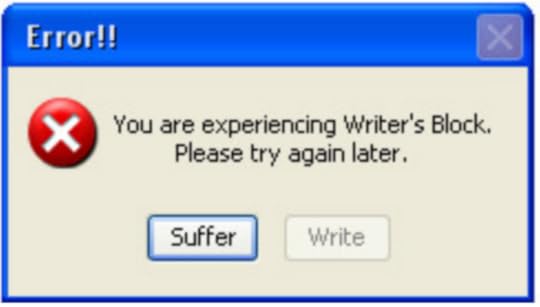
There’s drudgery in the actual writing. Oh no! Yes, you heard it here first. Writing, while one of the BEST jobs in the world, contains more than its fair share of suckage.
The first draft can be loads of fun, until the mire of Act Two where you find yourself contemplating sudden and unexpected alien abduction—either for yourself to spring you from writing, or for your characters because you’ve messed up somewhere in the plot and written yourself into a corner.
Becoming successful in writing (or anything really) is never in the BIG things we do. It’s the compilation of a lot of small acts that build up over time.
It is showing up day after day even when we’d rather get a root canal than figure out what went sideways somewhere between page 1 and page 400.
We have to research, proofread, edit, revise, and all of this takes focus and time and pain. By the time a book is “ready” to be published, odds are pretty decent we’ll hate our own book and hope we never have to read it again.
***FYI: The feeling passes…eventually. Most of the time. Maybe.
Publishing Drudgery
For those who still want to traditionally publish, there is the drudgery of writing synopses and query letters and researching agents. Add the drudgery of the actual querying and subsequent waiting.
Meanwhile, most of us have day jobs and laundry and family members who expect to be fed every day #HighMaintenance.
Oh, and make sure to start writing the next book  (refer to the love-fest above).
(refer to the love-fest above).
For those who choose a non-traditional path, we have to locate and hire the best people. Or maybe learn to format or design a cover ourselves. There may be multiple iterations of a cover. Then, if we believe we’ve found all our typos in our seventeen (hundred) passes? *clutches sides laughing*
And if we believe the proofreaders and editors caught all them too? Maybe, but..
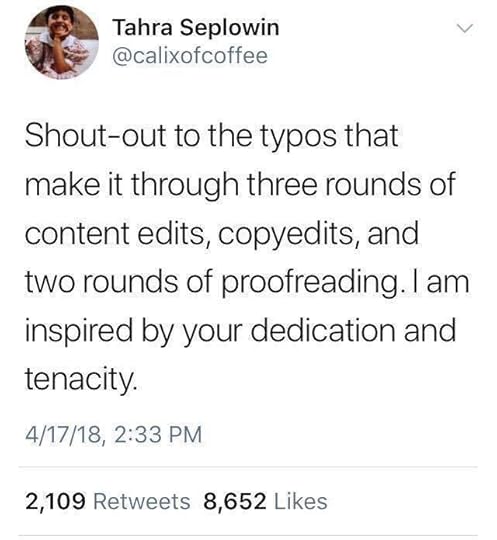
On top of this, add in bookkeeping, record keeping, accounting, building a platform, understanding keywords and SEO and blah, blah, blah.
Suffice to say that YES, writing is a WONDERFUL job! I wouldn’t be here twenty years later if it was all bad. Yet, I do have to confess that choosing to become a writer showed me the worst parts of my character…in Technicolor.
I didn’t start blogging because I EVER believed my blog would be what it is today with millions of unique visitors. Want to know why I began blogging? I had ZERO self-discipline.
I’d become a person who didn’t want to do anything that I didn’t LOVE. If I wasn’t having FUN, then clearly I’d chosen the wrong career, right?
Wrong.
The Fortitude Factor Is it REALLY closed?
Is it REALLY closed?People who reach their goals and dreams are different for sure. Are they more gifted? Talented? Unusually good-looking? Perhaps. But, more often than not, these folks excel at handling the boring parts of the dream.
To which I shall refer to one of my favorite books on achievement. James Clear’s��Atomic Habits��(which I HIGHLY recommend), is fabulous. Yet, this quote in particular piqued my attention:
The greatest threat to success is not failure but boredom. We get bored with habits because they stop delighting us. The outcome becomes expected. And as our habits become ordinary, we start derailing our progress to seek novelty. Perhaps this is why we get caught up in a never-ending cycle, jumping from one workout to the next, one diet to the next, one business idea to the next. As soon as we experience the slightest dip in motivation, we begin seeking a new strategy���even if the old one was still working. ~ James Clear,��Atomic Habits
You have NO idea how often I hear, “If I only had the TIME, I’d write more.” As if time is laying around in the couch cushions with the petrified Cheerios and the TV remote no one’s seen��Twilight��was popular.
Hey, I have been guilty here, too. Still can fall into old (bad) habits if I fail to remain vigilant. Yes, even after a pandemic when we all had more time than we knew what to do with.
The reason people (mistakenly) believe they must FIND TIME? It’s likely because they’ve hit the part of the writing process that’s actual WORK. It’s ceased to be a glorious high.
And, if they don’t start a new book (chasing the high), then they put off writing altogether using excuses more creative than their plot ideas.
Hey! Told y’all I have been guilty too…so no hating  .
.
Yet, when we look at anything worth achieving, from writing an amazing book to being a great parent to running a profitable business, we see that it is how these individuals handle the millions of unremarkable unexciting and downright soul-crushing (but necessary) tasks that makes all the difference.
We see the same common denominator in every success story, from the legendary athletes willing to do the same drills over and over until perfected to the entrepreneurs who mined drudgery for the edge they needed to outpace all competition.
Fortitude: Can You Handle Being BORED?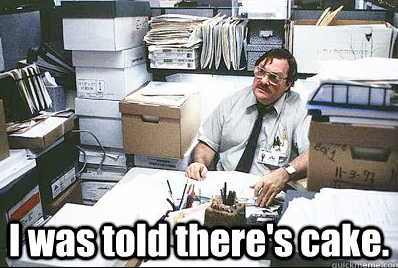 Nope. No cake.
Nope. No cake.Everyone loves new beginnings. The new relationship with no baggage and all hugs and kisses, the smell of the fresh notebook, the empty page waiting for all of our brilliant ideas. We love the new blog because it holds so much promise.
Then there is the new workout from YouTube, the new diet we found on Instagram, the new craft project we saw on Pinterest….
A lot of us fixate on whether we can handle the BIG moments, the MAJOR crises but I’d actually offer different advice. We need to ask the hard question.
Can we fall in love with pain and process as much as the end result? Everyone loves the summit selfie but few want the climb. It comes with hypoxia and pretty good odds you’ll die and no one will be able to claim your frozen corpse…ever.
Many of us LOVE the idea of six-pack abs…but we LOVE tacos more. We struggle after a few weeks. Why? Because we are tired, sore, and even though we’ve been working out for a WHOLE MONTH, we still don’t have a ripped physique.
Heck, we can’t even see a muscle. We’re tired of the pile of smelly clothes, the aches and pains and having to measure all our food. It isn’t FUN. In fact, it’s downright tedious.
We don’t LOVE the gym, the job, the book, the YouTube channel anymore because it’s day after day of nothing all that special…and pain.
Lots of that.
Catching Fire
Yet, all these small actions add up over time. When we embrace the dull actions and commit, we will eventually ignite. Ray Bradbury poetically asserted paper had an ignition point of 451 degrees Fahrenheit. The actual number is about thirty degrees higher.
Paper will burst into flames at about 480 degrees Fahrenheit (without being directly exposed to flame).
Using this analogy, let’s take our metaphorical paper and heat it to 100 degrees Fahrenheit, then 250, then 300, then 440, then 451. Boy, this is boring and taking a LONG time and taking energy. Nothing is happening.
Heat it to 460, then 470, then 477 and then throw up your hands because paper NEVER sets on fire without a high-budget marketing plan…I mean match.
Or, maybe there is a marked transformation somewhere between 477 degrees and 482 degrees. At 477 degrees Fahrenheit all looks the same. Oh but add in a little more energy and IGNITION. And this ignition all occurs within a range of a couple degrees.
Then…BOOM!The same goes for becoming a successful author (as in a professional who’s PAID to play with our imaginary friends). A major key to success largely rests on how we handle the boring parts. Can we keep going, keep putting on the heat when it looks as if nothing is happening?
Success doesn’t have a canonized ignition point. If it did, being successful would be easy. Fortitude is a massive game changer.
If I knew I had to write five books, three series, add in a hundred blogs and forty three good reviews to reach literary stardom? Dang skippy I’d stick with it. There wouldn’t be ANY drudgery, because I’d have certainty.
But that’s the problem.
The ignition point for succeeding in anything is anything but certain (and might not even exist in some cases). It differs between people, generations, goals, industries, abilities, etc. We DON’T KNOW and THAT is precisely why drudgery can so easily undo us if we lack the fortitude to outlast it.
In the EndI want all your dreams to catch fire—your dreams to write, create, to be an excellent parent or partner, to achieve the remarkable.
If you can appreciate that every masterpiece began as a blank canvas, a hunk of marble, an ugly cement foundation, a sketch, or an idea and that IN BETWEEN there was a lot of wash, rinse, repeat and fortitude (which we can control)? You’re on your way to reaching those goals.
We’re rarely limited by our talent, yet we’re all too often hobbled by impatience. Drudgery makes us cave in too soon. It takes time to hone skills, learn a craft, build an audience, etc. Just keep pressing and hopefully you’ll see your ignition point and it will be the most beautiful light you’ve ever seen.
Then you get to do it again for the next goal  . *smoochies*
. *smoochies*
But, you’ll be better and stronger because you know to expect the span of suck before the breakthrough! You will have strengthened and honed the fortitude required to finish. And the cool thing is, the more we work it, the stronger it gets.
What Are Your Thoughts?I love hearing from you! Do you struggle with the doldrums in your dreams? Is it hard not to just start something new? Are your fortitude muscles weak? Have you been starting over so much that maybe that’s why you aren’t further along? Are you so sick of your book you want to cry? #GotTheTShirt
Don’t you wish we had the magic “temperature” where our dreams LIT UP? Some way to know if we were close? Or even heading in the correct direction? Have you struggled with learning to finish what you start? Been too easily distracted?
The post Fortitude: Dream, Do, Then Keep on DOING Day After Day appeared first on Kristen Lamb.
October 23, 2024
Schadenfreude: Misfortune, Revenge, Justice & Catharsis

Schadenfreude is a word that many of y’all might not have heard of, yet we’ve all felt it. Interestingly enough, it can be a great tool to keep our audience interested and breathlessly wanting more. What is schadenfreude, other than a fifty dollar word we can toss around to impress friends and colleagues?
Schadenfreude—a combination of the German words for damage and joy—is the pleasure we feel at the misfortune of others.
Before anyone gets too judgy on me, we have all felt it.
Have you ever had some driver on the highway who believed they were above the rules and didn’t need to merge and take turns? Instead they sped up the shoulder so they could cut the line instead of patiently waiting their turn? Schadenfreude is the delicious enjoyment you felt when there actually was a police officer present who summarily pulled them over and ticketed the bejeezus out of them.
Don’t you judge me. Y’all know you love it, too.
We humans, by and large, have a sense of justice encoded in our psyche. This is why even a preschooler has a level of acumen usually reserved for an IRS auditor when adults pass out candy. They sense what is fair and unfair, right and wrong.
This ingrained sense of right and wrong and fair and unfair is part of what drives our need for a sense of justice. We don’t like it when others “get away” with doing something we perceive as “wrong.”
Shades of Schadenfreude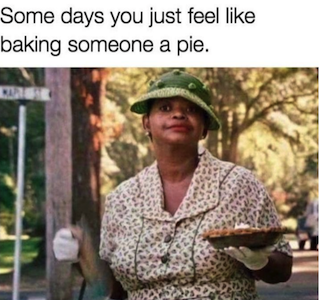
Therein lies the deliciousness of schadenfreude…the what we consider “wrong.”
Like most things involving the human psyche, this isn’t black and white, rather it exists on a spectrum. There is wonderful thrill of pleasure we feel when a speeder gets a (deserved) ticket that can go as far as total dehumanization of others and a delight at their complete destruction.
Schadenfreude is story jet fuel.
Before you might believe you are too “evolved” for such feelings, how many movie plots pivot on the bullies finally getting a taste (or more) of their own medicine? When there is a gross power imbalance, and that imbalance is abused, we humans can turn positively feral.
One of my favorite authors, Lucy Foley, wields schadenfreude like few other authors I’ve read. The Guest List and The Midnight Feast are page-turning dark delights. Alice Berman is another author who uses this darker side of human nature to create a thrilling story in I Eat Men Like Air.
Why do I love these books? Because these authors (stories) pick apart “the beautiful people.” From old money to self-anointed Instagram influencer demi-gods-in -their-own-minds, these stories pry at something primal in all of us…that some people are “better.”
Instead of characters who are grateful for a blessed life dripping in privilege, they are the entitled. They amuse themselves at the suffering of others purely for sport. Not only that, but they take great delight in how they, themselves, are above the rules. When these sorts of people commit crimes, the “real” world cannot punish them.
But Author Gods can.
Lovely Loathing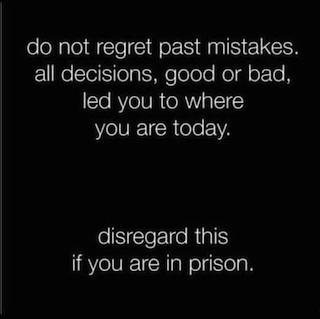
Foley and Berman are of the suspense-thriller variety, but Kevin Follet is another author who is unparalleled at whipping up a fire of resentment that rivals the fires of Gehenna. When I read Pillars of the Earth, I literally had to keep taking breaks reading the book because my own level of hatred overwhelmed me.
Like any book,��Pillars of the Earth��isn���t for everyone. It nearly wasn���t for me. Every time I considered throwing in the towel, I I found I couldn���t stop because I HAD to know if there was any kind of justice in this mad, mad world.
All of these books have a common thread. Raw, beautiful exquisite revenge justice.
We are ALL wired with a sense of right and wrong.
Even sociopaths have a sense of justice.Read Martha Stout���s��The Sociopath Next Door.��A sociopath might not lose any sleep emptying your bank account, but would be horrified if you did the same to him.
Follet masterfully wove situations where I was rendered utterly and hopelessly powerless.
What is the epitome of being a victim? ZERO POWER. When evil strikes, what does it do to a person?
It strips away their power.
From money crimes to sex crimes, to hate crimes to murder it���s the same. Arson, abduction, terrorism, shootings, sex trafficking, burglaries, large-scale vandalism, gossip, slander, lies, it hits us all in the same place.
It makes us afraid and vulnerable and impotent.

What makes it worse? When we KNOW who���s done this, but this is a person no one can touch.
This was what made me practically foam at the mouth reading Pillars of the Earth. Because the story is (loosely) based on actual history. In the Middle Ages, nobility and high-ranking clergy got away with a LOT of really, really bad things.
Talk about powerlessness to the power of a thousand.
*Kristen punching things* *grabbing for inhaler* *ponders subscribing to Hallmark channel*
Yet, it kept me listening (turning pages) because I could not rest until the world was set right and justice was served. I wasn���t even sure it would be or could be. And if it was, HOW?
THAT, my friends, is some fine storytelling (so I am extremely glad I didn���t return the book). Also, THAT is the raw power of schadenfreude.
Villains & Schadenfreude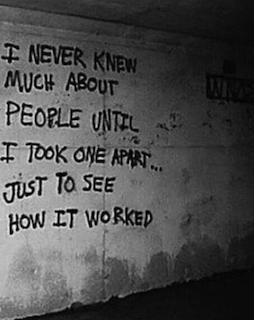
There are many ways to create legendary villains. And, keep in mind, there are different types of villains. Though, I recommend giving the villain a sympathetic goal, like the word wrong exists on a spectrum, so does the word sympathetic.
I get that far too many “normal people” think writing is easy. That if they only had enough time they’d be the next J.K. Rowling or George R.R. Martin. Sadly, no number of lockdowns is enough to disabuse some folks of the notion that storytelling is more than playing with imaginary friends.
To tell great stories, we are required to think differently than regular people.
***Refer to 13 Reasons Writers are Mistaken for Serial KillersA book is more than a lot of flowery words, it is a peek into what makes people tick. Which is all well and good except some people’s “clockwork” is arguably manufactured in HELL.
Villains (antagonists) cannot want what they want for no reason. “Just cuz” is not good enough. When storytelling, we must be capable of violence. That is the only way for the “happy ending” to have any meaning.
***And before you think this is only for gritty genres, remember most fairy tales have some pretty horrifying villains.
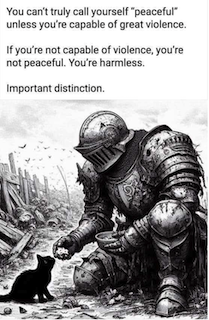
Even the most revolting people in all the works I have thus far mentioned, deep down, believed themselves the heroes of their own stories. No matter how horrible they were, they genuinely could not see themselves honestly. Their world was a funhouse mirror designed to warp them into something they were not.
That said, some characters deserve destruction for one simple reason.
They are beyond redemption.
They are the rabid dogs of fiction. Writers and audiences alike know that to let some characters live or remain free is unacceptable. They are poison.
Why schadenfreude is such an incredible literary device is because it speaks to justice, which is universal. When crafting a villain (or even side characters who serve as antagonists), what universal rules are they breaking? Why? How? Now, can you dig deeper until the pages BLEED?
Villains & Cognitive Distortion
To a degree, all characters in our story are dealing with cognitive distortions. If they aren’t, then they aren’t interesting. All humans struggle with personalizing, catastrophizing, minimizing, justifying, unattainable standards, wishful thinking, etc.
In fact, for your touring pleasure, here is a list of 50 Common Cognitive Distortions.
All characters should have a cognitive distortion–to a degree–because all characters should arc.
What makes the villain unique, however, is they have a negative arc.
While the MC or other positive forces (allies), grow, mature and evolve, the villain does the opposite. The villain devolves. They become even more convinced of their righteous cause, even more controlling, raise their already absurd standards to new levels of ridiculous, etc.
Ideally, we will give some reason for why the villain does what he does or believes what he believes. While we might not be able to, say, empathize with the actual cognitive distortion, we (the audience) can empathize with either having experienced the distortion ourselves OR the reason for the distortion.
For example, I cannot relate to the same level of entitlement as Francesca Meadows in The Midnight Feast. I am not old money, reared to believe I am privileged and entitled BUT I DO viscerally remember the first time I met another kid named “Kristen” and the raw fury I felt that another kid in my preschool had MY NAME!
MY NAME. MINE.
It’s a silly example, but she had to be destroyed that childlike rage is something a good story can tap into to give us the proverbial “sympathy for the devil.”

The Bible, in the Book of Daniel, tells the story of Belshazzar, who was King Nebuchadnezzar’s successor. Talk about a guy with an ego problem! He holds a banquet for all the nobility and thinks that calling for all the holy vessels from the Jewish Temple is a great idea…since they totally didn’t have enough cups *flips hair*.
What Belshazzar didn’t know—and likely would not have cared even if he did—was that he’d committed a great sacrilege. Y’all know the phrase we toss around, “Read the writing on the wall.” Well, this is where it comes from.
After Belshazzar uses all the holy vessels as Dixie Cups for his Meta-Influencer BBQ, a disembodied hand appears and writes Mene, Mene, Tekel, Parsin on the wall.
He can’t read the writing on the wall (nod to Shakespeare and IRONY) and calls for Daniel to translate the message, which was in Aramaic.
God tells Belshazzar that 1) his days are numbered (another nod to Shakespeare) 2) that his kingdom will fall, and 3) that he has been weighed, measured and found wanting.
There are good reasons that we find all the best stories mirrored in Scripture or Shakespeare.
Humans don’t change, and if humans don’t change, then—ipso facto—villains don’t change.The entitled trust fund baby can genuinely believe they are “better” than others. Yet, though they are deeply believe they are better than others, they simultaneously fear their days are numbered. Frequently, they know that while they are better than everyone else, they’re never “good enough” for the person (people) who matters.
Additionally, with villains like this, their pride becomes their Achille’s Heel. They so wrapped up in their agenda, they are blind. Because they are blind, they cannot help but fall.
And none of us (readers) mind if they’re given a little push.
Schadenfreude & Catharsis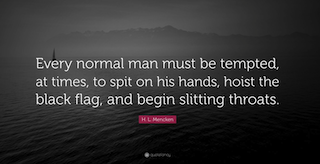
From Edgar Allen Poe’s The Telltale Heart to Kathryn Stockett’s The Help we audiences aren’t happy until there is some form of comeuppance.
***Ironically, in The Telltale Heart the MC is the villain. His own inborn sense that evil cannot go unpunished is the point of the story.
All stories are only as strong as their villains. If we are wishy washy on the villain, the rest of the book is bland. When we hold back on our villain, we inadvertently wreck our stakes.
There is something primal in all good stories. Humans have deep sympathy for the unavenged, the disappeared, and the disenfranchised. Every day, we see injustice and evil, and every day we know that the people causing much of this suffering will never be called to account.
Writers & Schadenfreude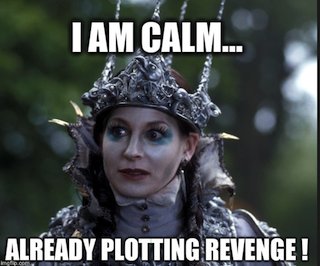
Do you wield a little schadenfreude when you write?
I always find it a bit funny when readers ask if my villains are based on people I know because…DUH. YES. #SeriouslyDumbQuestion
Are they wholly patterned off ONE person? No. That would be copying not creating. They’re a collage of a million little events that made me…ME. And I get to enjoy a little bit if schadenfreude by casting them in my world  .
.
*insert evil laughter*
It’s very therapeutic and cheaper than a defense attorney.
Do you see how just a touch of schadenfreude can also help with a “too perfect” character (maybe an MC)?
“Cutting someone down to size” is enjoyable in life and in fiction. Though we didn’t go into it today, can you see how schadenfreude can work in a redemption story, a love story, or wherever a character needs to grown and learn some humility?
I LOVE hearing from you!Had you ever heard the term schadenfreude? Are you now committed to now finding ways to work this word into everyday conversation? Do you enjoy books and movies that deal out at least a little revenge?
Am I the only person who revels when a hidden cop pulls over a reckless driver?
Thoughts? Opinions? Favorite tales of schadenfreude?
And remember, my perennial author branding book, Rise of the Machines: Human Authors in a Digital World and my mystery thriller The Devil���s Dance are both on sale on Kindle right now for only .99.
Whether it is comments, shares, sales, or reviews, these are the things that keep us content producers (and authors) going and able to keep delivering. I always appreciate your support and love being able to keep doing this for you!
The post Schadenfreude: Misfortune, Revenge, Justice & Catharsis appeared first on Kristen Lamb.
October 17, 2024
Stakes: How to Hook an Audience All the Way to THE END

Stakes, bizarrely enough, are a key ingredient missing in many stories. If the characters don’t have skin in the game, why would the audience? The bigger the stakes the better the page turner. Whether on the page or on the screen, what keeps audiences enraptured the most? What makes us spend an entire weekend inhaling a book, a series, or binging that Netflix series?
We want to have to know…what happens.
How does the MC react to a certain problem? Can they recover? Do they win? At what cost? Ultimately, we have to know how it all turns out.
That is the beauty of stories and why we humans love them so much. Real life has stakes but little to no assurances that everything will work out for the better.
Life has plenty of stakes but little to no closure. It is no coincidence that one of the first “matchmaking” sites on the internet was Classmates.com. So many of us, new to the shiny internet, finally had a way of looking up people we once went to school with to see what happened.
Did the Homecoming Court really go on and lead the same charmed life they seemed to enjoy in high school? What about the bully? The smart kid? How about that crush we never quite had the courage to talk to? Did we miss out on a gem or dodge a bullet?
Stakes are the fuel that fires our need for closure. This is critical for any story. Read a book to a five-year-old and try to stop halfway through. Even kids won’t let us off easy. Because of the rising stakes, they’ll want to know, “How does it end?”
Stakes and Structure
Last post, we discussed agency and we took an aerial tour of plot structure. We toured all the major sections of plot, what they do, and how one section should feed into the next.
Now before you guys get the vapors and think I���m boxing you into some rigid format that will ruin your creativity, nothing could be further from the truth.
Plot (storytelling) is about��elements, those things that go into the mix of making a good story even better.
Structure is about��timing���where in the mix those elements go.
When you read a novel that isn���t quite grabbing you, the reason is probably structure. Even though it may have good characters, snappy dialogue, and intriguing settings, the story isn���t unfolding in the optimum fashion. ~James Scott Bell from Plot and Structure.
Structure holds stories together and helps them make sense and flow in such a way so as to maximize the emotional impact by the end of the tale. How we keep ratcheting emotions is we layer on higher and higher stakes.
If structure is the recipe for a fine meal, the stakes are how, and when we apply the heat. We can buy all the fanciest ingredients for a French meal. Have all the expensive doo-dads. We can measure out every ingredient to the milligram but what happens if we never turn on the heat? Or, conversely, we cook everything on the highest heat possible?
While we DO need to look at how to add the ingredients, timing how we heat the story makes the difference between a masterpiece and a mess.
The Micro-Scale of Story Structure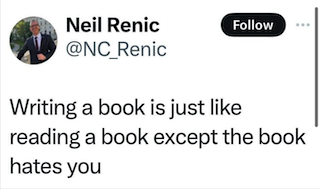
We���re going to first ZOOM IN and place the novel under a literary electron microscope.
The most fundamental basics of a novel are cause and effect. Super basic. An entire novel can be broken down into cause-effect-cause-effect-cause-effect (yes, even literary works). All effects must have a cause and all causes eventually must have an effect (or a good explanation).
I know that in life random things happen and people die for no reason. While life often IS stranger than fiction, fiction ain���t life.
So if a character drops dead from a massive heart attack, that seed needs to be planted ahead of time.
Villains don���t just have their heart explode because we need them to die so we can end our book. Our MC can���t suddenly discover a journal that EXPLAINS EVERYTHING in the middle of Act Two because we failed to properly plot an actual story and painted ourselves in a literary corner.
Now, all these little causes and effects clump together to form the next two building blocks we���ll discuss���the scene & the sequel (per Jack Bickham���s Scene & Structure). Many times these will clump together to form your ���chapters.���
Whenever I edit or teach writing, I have a mantra: “Never leave a logical place to put a bookmark.”
Scene & Sequel & Stakes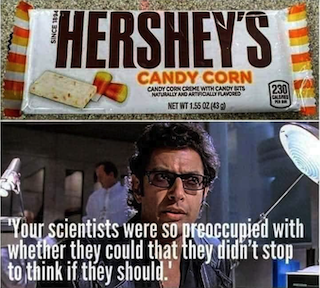
Word order matters, or we end up with confusion.
Structure���s two main components, as I said earlier, are the scene and the sequel.
The scene is a fundamental building block of fiction. It is physical. Something tangible is happening. The scene has three parts (again per Jack Bickham���s Scene & Structure, which I recommend every writer buy and read and study).
Statement of the��goalIntroduction and development of��conflictFailure of the character to reach his goal, a tactical disaster (raise the stakes)Goal ���> Conflict ���> Disaster
The sequel is the other fundamental building block and is the emotional thread. The sequel often begins at the end of a scene when the viewpoint character has to process the unanticipated but logical disaster that happened at the end of your scene.
Emotion���> Thought���> Decision���> Action
Link scenes and sequels together and flesh over a narrative structure and you will have a novel readers will enjoy.
Oh but Kristen you are hedging me in to this formulaic writing and I want to be creative.
Understanding structure is not formulaic writing. It is a story delivery system that makes sense on a fundamental level.
Formulaic writing refers to the execution of story structure. It���s a reflection of skill, or rather, lack thereof. So relax, structure is your friend. It will make writing and finishing books easier, and it comes with the added bonus of not confusing the bejeezus out of the readers.
This little recipe also helps us slowly (and later quickly) turn up the heat on our characters.
Skin in the Game
One of the biggest mistakes I see, particularly with new writers, is we can be too nice. There is a good reason normal people (code for “readers”) eye us writers with a deserved degree of suspicion. It takes a certain level of sadism to write great stories. When any mere boring mortal would want to back away from pressure or explain away a problem, we writers must plunge ahead and let the characters and (by proxy) the readers suffer.
The more they suffer, the better.
Why do you think A Game of Thrones was such a worldwide phenomenon? Huge, huge stakes! Global and personal. We, the audience, learned pretty quickly not to get too attached to any one character because they were likely to not only die, but die horribly.
So long as the HBO writers stuck with that recipe, global audiences couldn’t get enough. The minute they rushed the story, broke the rules and took away the stakes? The series imploded into a disaster.
Refer to post: A Game of Thrones: A Song of ‘I Literally Can’t Even’
A major reason the HBO series devolved into disaster is they’d done an incredible job of raising global and personal stakes. Stakes drove audiences to forgive major delays in later seasons. We were all biting our nails to the quick, our nerves shredded…then the characters all got a magical pass.
Spoiler Alert: Ice Zombies no big deal and winter never came.
How Vested are Your Characters?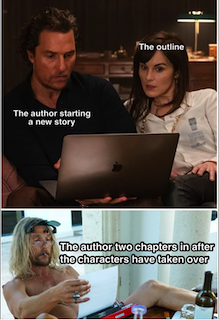
When we craft any story, we must ask ourselves, “What do they have to lose?”
I love pretty prose probably far more than the next person, but using cerulean instead of blue is not what makes audiences care. We aren’t there for the wordsmithery, yet it is very easy for us writers to fixate on a new way of saying green instead of focusing on the bits that matter.
If you go look at most of the authors who are guaranteed to sell a lot of books, usually the prose is fairly plain. These authors understand it is the story that matters most. Stakes are what will stake our reader in place and refuse to let them go until THE END.
Thus, ask yourself:
What happens if my MC fails?
Who suffers if my MC fails?
How does their world change for the worse if the MC fails?
If nothing changes, we are missing a key ingredient to our story. As the story progresses, the challenges will get harder physically and emotionally. Our characters need a compelling reason to keep going.
Upping the Stakes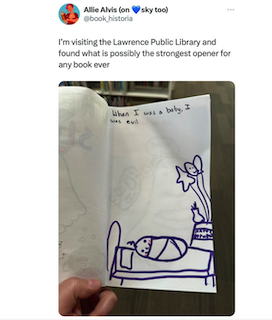
Going back to my recipe metaphor, there is a time and place to up the stakes and to back off a bit.
Have you ever been to an action movie that was just fight scene after chase scene after fight scene? You never got a chance to take a breath and walked away needing a nap…or a drink?
Here is an instance of the writers either making the sequels too short in duration or not having enough overall. The sequel is the breather where the characters process and act/react to what’s happening. If our sequels are missing or underdeveloped, this can make our characters come across as one-dimensional.
Audiences don’t care deeply about those kinds of characters.
Then we have the opposite. Sometimes filmmakers try to take stories that are excellent on the page—because audiences have the window into what the characters are thinking via the narrative—and put it on film.
Problem is, you have to cast really, and I mean really superlative actors to pull it off…and even then *yawns*
These are frequently the artsy films that seem to never take off. All the stakes are internal, existential and…meta. While critics might love them, usually these films are a flop with regular audiences.
In fact, any time I see the phrase “a visual masterpiece” I know the movie is likely to suck.
Do both these “genres” have a fan base? Sure.
There will always be people who will go to the next Mission Impossible move just like there will always be folks, pinkies outstretched, who loooove anything at Cannes. Yet, those are the fringes and, if we want to reach the biggest audience, the fat middle part of the bell curve is a better bet.
The Goldilocks Zone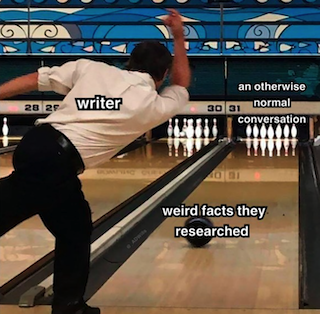
When it comes to most genre fiction, we should look to the scenes and sequels for cues as to where, how and how much to raise or lower the stakes.
If we go back to our example last week with LOTR (Lord of the Rings). When Frodo and Samwise set off from the Shire WE the audience know they are eventually going to have to destroy the ring in Mount Doom…but they don’t. Had Tolkien started off with that, Gandalf would never have pried the Hobbits from under the bed.
On each leg of the adventure, there is a resting period and then Tolkien ups the heat. He makes the invading armies closer than they realized, bigger than they imagined, and he progressively shortens the ticking clock.
What if we aren’t writing epic high fantasy?
Genre and Stakes
I have a post where y’all can go check out the different genres. We need to know what genre we are writing so we know what the rules are. And yes, we need to follow the rules. We need to know the rules to break the rules. That is art. Breaking rules we don’t know is just called being a hack.
If I am writing a mystery, then I know my story needs to open with a crime and that the entire point of the story is figuring out whodunit (And Then There Were None). Writing a thriller? A big bad thing happens at the beginning…and it is a race against time to stop way bigger bad thing from happening (Jurassic Park).
On and on. Look at your story’s genre and see what the reader expectations are…then feel free to break rules to deliver what they wanted but never expected in that way (Gone Girl).
Stake Sizzlers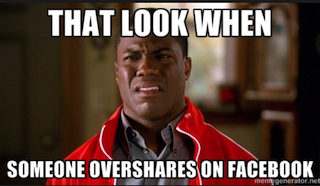
What are some ways we can organically up the stakes in our story? Remember to Be a Secret Keeper. Resist the urge to explain. Audiences, in large part, are hanging on because they want to find OUT some piece of information. This is why flashbacks, by and large, are a no-no.
If we know WHY Eric Northman (in True Blood) is dark and brooding the first time we see him, it kills the thrill. Yes he is a vampire and they are a notoriously emo bunch, but why is he uniquely emo? Unlike (IMO the tedious Bill Compton) Eric Northman was far more interesting because we didn’t get all this backstory right out of the gate.
He remained a mystery longer, which was why I felt he was a far more powerful driver for the series.
Hold off on self-actualization. Characters who are too sane, too evolved and too emotionally healthy are a fiction snooze fest. The trick is that they are likely to believe they have their sh!t together…when that is far from the case. OR, if they know they’re a mess, they will vastly underrate their faults, over magnify their virtues or completely miss what their issues are altogether.
The story then, should be designed to peel away their self-delusion and make them face their darkness so they can change for the better.
The MC must be sympathetic and redeemable. Before anyone shouts me down, I get this has a lot of latitude. Antiheroes and anti villains are becoming increasingly popular. That said, there are certain lines we cannot cross with most audiences. Feel free to join in the thirteen-year-long argument on my post What Went Wrong with the Star Wars Prequels?
Anakin Skywalker is a little kid killer. Never redeemable. Ever. The end.
What are your thoughts?Do you struggle with being too nice to your characters? I know I still do. Often I have to go back and write in some mess ups to keep the tension going. Are you bad about over sharing? Over explaining? Can you see some tricks in here to keep audiences wanting more?
I love hearing from you! Anything you’d like to add? Maybe books, series or movies that handled stakes really well? Do you have any questions? Topics you’d like for me to explore in future blogs?
And remember, my perennial author branding book,��Rise of the Machines: Human Authors in a Digital World��and my mystery thriller��The Devil���s Dance��are both on sale on Kindle right now for only .99.
Whether it is comments, shares, sales, or reviews, these are the things that keep us content producers (and authors) going and able to keep delivering. I always appreciate your support and love being able to keep doing this for you!
The post Stakes: How to Hook an Audience All the Way to THE END appeared first on Kristen Lamb.
October 11, 2024
Agency: The Critical Component of ALL Great Stories

Agency means a condition of being in action, instrumental, or possessing some kind of power. It can incorporate not only making decisions, but the belief that we (or our characters) have choice. If we think about it, if there aren’t options, then by default, our characters have no power and are not making any decisions. They are the flotsam and jetsam being flung along by the currents of Fate.
Code for “boring.”
I’ve been editing fiction for over twenty years, and one of the biggest problems I see with new writers is that the “story” is really just a series of bad things happening. There is no agency. The character is totally reactive. To a degree, this is fine in the opening salvos of the story.
To a degree.
If we parse apart novel structure, what we will see (especially with good stories) is that there is a steady progression of agency that flows in tandem with rising pushback, higher stakes, and a steadily compressed ticking clock.
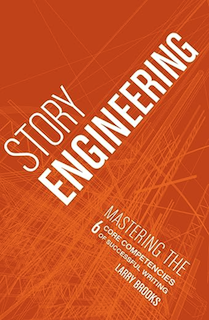
My favorite writing instructor for plot is Larry Brooks. His “How To” Story Engineering, for me, was a game changer. For years I knew how to edit a plot, but when I sat down to write, everything just sort of fell apart. I’d read craft books or take classes and, what seemed so simple and doable, always turned to utter mush roughly 25,000 to 30,000 words in.
Many of you might know what I am talking about.You come up with a BRILLIANT story idea and begin writing. The first 10,000 words are amazing! The words flow and you write until you think your hands might fall off.
By about 15,000 to 20,000 you begin losing steam.
After 28,000 to 30,000 it starts feeling like it might be easier to do brain surgery from space…with an egg beater. #KillMeNow
Why is that?
Structure and Agency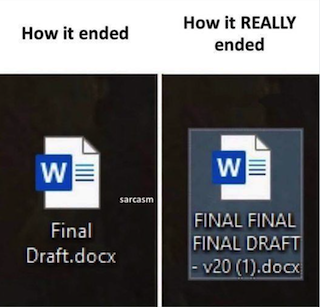
I love, love, love the way Larry teaches us how to think about plot (and recommend the book, obviously). He gave me a simple way of thinking about all my stories in a way that keeps me always moving forward.
Additionally, if I do get stuck, I can quickly diagnose WHY and where and how I am going wrong.
I prefer to think of story in five acts (just an expansion of Aristotelian three-act structure).
The opening is Normal World. This is usually pretty short, especially in our modern age where audiences have the attention span of a crack addicted fruit fly…that also happens to have severe ADD.
Yet, Normal World is CRITICAL. This is where we (the audience) will meet the protagonist we are supposed to care about enough to dedicate time, money and attention we don’t have for an average of 12-15 hours. It is also where we get an idea of the problem this character will have to face and overcome to be rightfully called a hero.
In the LOTR (Lord of the Rings), we begin in the Shire. Why? Because we have to actually care about the Hobbits and the Shire. We cannot be vested in a people and place we don’t know.
The inciting incident, introduces the core story problem. If there is no hint that Sauron is alive and well and living in Beverly Hills Mount Doom, there really is no point to us even meeting Gandalf and the Hobbits. But keep in mind, no decision has yet been made.
When Gandalf sticks a ring Frodo inherits into the fire, he only believes the ring possibly maybe might be THE RING. For Frodo and Samwise, the adventure has not yet begun.
In Normal World, the character will have very little to no agency…until…
Turning Point to Act One: Agency Sparked
The inciting incident reveals a fork in the road. This is where the MC’s life bifurcates. One road leads to retaining the status quo. The other road leads to adventure.
Yet, the character must choose of their own free will to set out on adventure.
Events cannot simply fling them ahead. Granted, they will be signing up for far more than they can handle, but (at the time) they don’t know that. They also need to have some vague idea of what the adventure entails. To toss characters out into the world and push them from point to point is NOT dramatic tension.
It’s soap opera writing.
Which is fine for fan fiction (episodic writing), but not great for novels, novellas, short stories or screenplays.
When Frodo and Samwise leave the Shire, their goal is NOT to destroy the Ring of Power in Mount Doom. It is far simpler. It is simply to meet Gandalf at The Prancing Pony. While scary and out of the comfort zone, it is (to them) still doable. Additionally, they know the adventure is in some way tethered to a ring dangerous enough to even scare the great Gandalf the Grey.
Act One: Running
In Act One, our MC will be largely reactive. They don’t yet believe they have agency, though they still must exercise it for a good story.
For instance, Gandalf doesn’t force Frodo and Samwise to meet him. They agree to leave the safety of the Shire.
Additionally, it isn’t Frodo and Samwise’s fault they miss Gandalf at the rendezvous point. However, they must choose to trust Strider. They have to choose to either stay at The Prancing Pony (or return after the Black Riders have left and hide) OR to follow a stranger they don’t know into the wild.
We authors must always provide opportunities where, if the character(s) makes a decision, one decision pushes the narrative forward and the other ends the story.
What Does this Look Like?For instance, in the movie Labyrinth, we meet Sarah faffing off in a park in costume reciting lines from a play. In Normal World, Sarah is flaky, entitled, immature (but also clearly hurting).
The inciting incident is when she discovers her missing teddy bear and decides to be emotional and take her out anger on her infant brother. She chooses to recite the call to the Goblin King to take her baby brother.
Granted, she has zero clue it will work, BUT when it does work and David Bowie materializes—looking far too sexy for a grown ass man in makeup and big hair—and offers her a chance to have all her dreams…the story truly begins.
One decision lets him rule her, give her all she ever desires…if she only turns over her baby brother. The other decision is to race against the clock and see if she can rescue her brother from the center of the labyrinth.
Obviously, if she gives up baby brother, the story ends. And an entire generation of preteen girls, myself included, took 25 years to work out why she didn’t grab the deal.
Quick Note on Labyrinth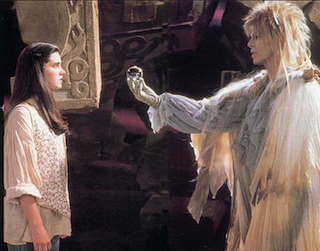
Movies can be a lot of fun to study, especially good ones. If you haven’t seen Labyrinth or have slept since then, I recommend going back and watching. I learn something new every time. In fact, the last time I watched it I learned a whole new level I’d missed, but had been there all along.
Roll with this and indulge me, it’s actually cool/important.
Sarah arrives late to babysit her brother. We (the audience) are somewhat misled. The stepmother points out exactly what Sarah’s problem is. Sarah is stuck and not growing up normally. The stepmother tells Sarah that she can say if she has plans, that they want her to have plans and she should have her own plans, but Sarah balks. She treats her like the evil stepmother out of a storybook no matter what she says.
Dad backs up stepmother. This event is what drives Sarah into a temper tantrum.
But pay attention.
Dad is obviously remarried and remarried long enough to have an 18 month old baby. One would assume, given the times, that Dad and Stepmother had dated and married before the 9-10 months to have the brother. This means a minimum of 2.5 to as much as 3 or more years has passed since Sarah’s mother was in the picture.
My entire life, I assumed Mom had died, since Hollywood loved killing off parents. Watch the introduction when she is in her room. Played at normal speed, we see playbills with the mother and even with Sarah.
Okay, so mom was an actress and daughter is a theater nerd following in mom’s footsteps.
Or is she?
Now PAUSE the MOVIE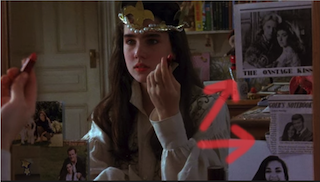
Now, go back and rewatch and hit PAUSE. If you do this, the entire story changes. Pay attention to the newspaper clippings taped in her vanity mirror, the clippings that at normal speed I’d assumed were likely an obituary or newspaper articles about a famous but now dead mother.
Whose face do you see?
JARETH, the Goblin King.
In among the articles and scrapbook clippings a whole new story emerges.
Jareth looks just like the mother’s costar. What now seems far more likely is the mother ran off with another man and abandoned her daughter at roughly age 12-13…exactly the time she should have started transitioning into adulthood.
This is a whole other level of emotional damage.
It now makes perfect sense why Sarah is emotionally moored in childhood. Additionally, a sparkly, charismatic man offering to take care of her if she sacrifices a child in her care, has a whole new twist.
If great movies understand the power of Normal World, we should too. Every story should introduce the Big Boss Troublemaker right from the start.
In Labyrinth we get this in the park where she’s reciting the final lines to take down the Goblin King. BUT, we ALSO see him again in her bedroom in the moments before she recites the incantation that sets off all events from there.
Act One: REACTIVE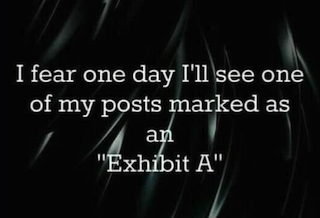
Once our MC decides to step out on adventure, sure, there will be a lot they cannot control. Yet, they still must have agency, meaning options.
New writers can be very bad about making the MC far too passive. They have no other choice but to do X, Y, Z. This is author intrusion.
Now, I am not suggesting to make the options silly. The Hobbits aren’t choosing between trusting Strider and certain death. They could circle back to the inn for shelter or decide to hide in the woods and wait it out for Gandalf. The choices might suck, but they are at least doable.
Agency is limited in Act One because not only should we have a plot arc, but a character arc. If characters are too perfect and can handle everything the story throws their way with dignity and aplomb? That is a snooze fest.
There has to be something emotionally undeveloped that must change by the end of the story.
For the Hobbits, they believe their happiness and fulfillment lies in adventure, in anywhere BUT the Shire. The very place they despise for being boring will be the one place they’ll (eventually) be willing to sacrifice their lives to save from certain destruction.
For Sarah, she’s stuck in nostalgia and is refusing to evolve. Again, when she steps into the magical realm, who does she meet? Hoggle. Again, Hoggle tells her what her problem is, but she is not yet matured enough to appreciate the advice. He tells her, “You take too much for granted.”
Taking things for granted is a hallmark of childhood. It is, in fact, a mark of ZERO AGENCY.
Act Two: Warrior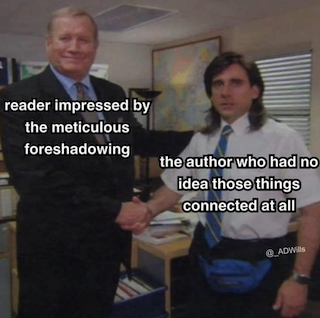
Act One is relatively short. How do we spot the turning point to Act Two? This is when the MC shifts from running to fighting. In Act One, circumstances bigger than them are beating the hell out of them. They fight back but are really hitting in the dark. They are unaware of what the larger story problem is and probably still unaware of their character flaws that are holding them back.
Act Two is when some sort of event or information changes the MC’s perspective and their level of agency. They go to being a mix of reactive and increasingly proactive.
When the Hobbits take refuge with the elves, Gandalf confirms that Sauron is back and there is only way to stop him. At this point, the Hobbits still can go BACK to the Shire. Rather, they willingly decide to keep going. Frodo will bear the Ring and Samwise will act as a helper/bodyguard.
In Labyrinth, Sarah is stuck in an oubliette (a small prison cell). The adventure has effectively ended. Hoggle comes to her aid and is happy to lead her back home and out of the labyrinth. If she goes home, story over. Yet, we are in Act Two. Sarah bribes Hoggle to help her solve the labyrinth.
She has effectively taken on a new level of agency.
Act Two will be the longest act. Again, I recommend Story Engineering. Larry has some great diagrams and formulas and examples. But, in Act Two, the thing we must remember is our characters must have increasing levels of agency.
NO CHEATING!
Maybe your character is far too perfect. Or the opposite. They don’t have any of the right answers…they are just luckier than a leprechaun dressed in a coat made of rabbit’s feet.
Bad thing happens—Oh no what will we do?—then some existing character or new character rescues them out of the mess at zero cost and with no effort from them.
NO.
This is the part of the book where many new writers decide to leave a convenient journal, video, have a new character appear with all the abilities and answers. NO.
Y’all might know I love horror (supernatural type books), and I read…a lot. Recently, I listened to a book with a premise that had a lot of promise. I couldn’t finish it.
The characters had no agency. Instead of them actively having to find answers to why crazy/life-threatening stuff was happening in their basement, the author used a crap ton of seriously convenient “dream sequences” that served as flashbacks to spoon feed vital details.
NO.
Flashbacks are a sign of weak/lazy writing.
Before anyone argues with me, check out Why Flashbacks Ruin Fiction and Time as a Literary Device. Can we mess with time? Sure! I love doing that. But like all things in writing, the rules exist for a reason. There is a certain WAY to go about using time.
Tossing in hidden boxes of journals or videos slipping in dream sequences absolves the characters of responsibility. In short, it takes away agency. Handing characters the answers all-but-spelled-out is cheating.
Bright Idea Fairies and Agency
Since Act Two IS so long, you’ll have what are called “pinch points.” This marks how our character is not only progressing along via plot, but how they are emotionally maturing. Since they are not yet fully evolved, they’ll try to rely on their old ways of thinking. They haven’t yet come to understand that their old habits/worldview etc. is precisely part of the problem.
Which is why, as they are trying to solve the core story problem, they will have what I call “bright idea fairies.”
Usually the “bright idea fairy” will be in some way related to the character flaw. If your MC is a workaholic who needs to appreciate life and family, expect them to orchestrate events where they can have BOTH (Inviting the wife and kids to a company event).
Maybe your MC is a fighter. Their instinct will be to fight. If they hide and avoid, they’ll look for better ways to hide and avoid. If they’re a control freak, they’ll keep white-knuckling and refuse to trust others and delegate.
In Labyrinth, Sarah is taking on increasing levels of responsibility, but not enough. She is still far too reliant on her allies.
Bright Idea Fairies (BIFs) are directly responsible for the False Victory and, by default, the Darkest Moment.
The False Victory is the Big Boss BIF, the brightest of the Bright Idea Fairies. It is the last event that should prove to our MC they must make those final changes that transform them from a lowly MC (protagonist) into a hero.
The Darkest Moment is where everything has failed and the protagonist is dumped unceremoniously at the final crossroad. One road leads home (and to failure), the other plunges ahead into certain death (or at least implied certain death).
Agency Unleashed: Act Three HERO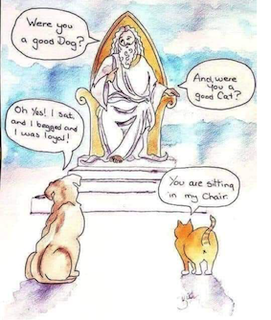
After the darkest moment, we usually see the rally of the allies. Once everything has been stripped away, what matters is restored. HOWEVER. The difference here is that the hero finally understands they must go it alone. Only ONE character can take on the Big Boss Troublemaker.
***Or two if this is a Buddy Love structure like LOTR or a romance. Yet, the two have effectively become one. In romance, guy and gal must come together if they hope to be victorious. Yes, they can spend the entire book driving each other bonkers BUT they must come together like VOLTRON in order to win.
This is the climax of the story. The odds should be total sh!t. In fact, the worse the odds, the better the story. That and time should be almost out. If the MC fails, super bad things need to happen or we will not care.
These can be large-scale catastrophic implications. Sauron rules Middle Earth and destroys all Frodo and Samwise hold dear, OR personal catastrophic implications. Sarah loses her little brother forever.
By Act Three, your character has ditched the old self and is now battling the BBT (Big Boss Troublemaker) on new terms. Frodo and Samwise willingly accept a suicide mission to protect the Shire.
Sarah goes in to face Jareth on her own. How does she win? She claims her AGENCY.
“You have no power over me.”
Once she finally realizes that Jareth only has as much power as she has been willing to relinquish, he loses his hold over her.
The Denoument: Agency Realized
After the battle is won, the world might be in shambles but everything has changed for the better. Yes, the end of every Marvel movie means some big city is reduced to rubble, but the greater threat has been neutralized.
At the end of LOTR, we see an interesting bookending in the movie.
In the beginning, the Hobbits (mistakenly) believe adventure outside of the Shire is the key to personal fulfillment. They are naive and childlike which is largely why Sauron never offered them jewelry.
He underestimated that the very qualities that nearly get them killed (frying bacon on a mountain with dead kings on their trail) is also what makes them remarkably resilient to the sway of the Ring (and arguably the only reason they succeed when all other races have failed).
Yet, there is a cost.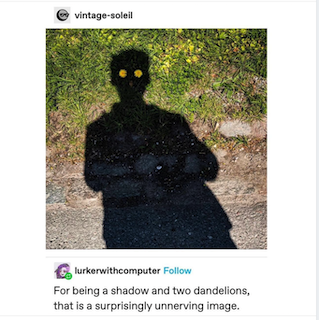
Unlike the opening in Normal World, our heroes aren’t bouncing along getting into mischief. They sit, somber and broken at a table, forever changed. Their fellow Hobbits laugh and drink and joke in the background, oblivious to the sacrifice these Hobbits made to make that a reality.
They have learned that self-serving adventure is not the secret to happiness, rather sacrificial love is the key to joy.
The book is vastly different than the movies. In the book, the Shire does not survive in tact.
It is razed, and the Hobbits killed or enslaved. Life is no longer beautiful and innocent. Those in the Shire live in fear and are barely surviving.
Our band of heroes return expecting a hero’s welcome only to come to the horrible realization the battle is far from over. The biggest fight is yet to come. They must liberate the Hobbits and rebuild what remains of their home.
That said, while everything they knew and took for granted is obliterated, they can finally rebuild in a world that is no longer under constant threat.
Unlike the other Hobbits who have bowed down to their oppressors, Frodo, Samwise, Merry and Pippin pass on their lessons and show their fellow Hobbits they have more power than they know.
Using Agency in Our Writing
The key thing to remember about agency is that our character must always be actively involved in the decision making process. They can and WILL make a lot of bad decisions. Yet, over time, as they mature, these decisions will vastly improve.
I use this when I am writing. It doesn’t matter if we are a plotter who loves outlines or a pantser (write by the seat of our pants). In fact, for the pansters here, having an understanding of agency is KEY. It’s likely even more important since we rely more on intuition to write.
I am a PlotserThat means I create a log-line that says, overall, what my story is ABOUT. But it serves as a guideline to keep me pointed in the correct direction. If I know (usually by word count) that I am well into Act Two, then I know when my MC is being too passive.
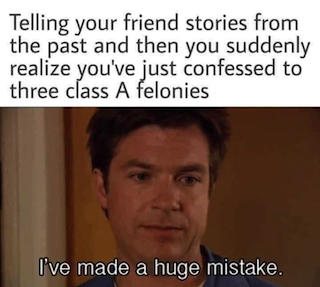
Are they relying too much on others? Do they still react to everything as opposed to becoming increasingly proactive? Am I offering actual choices to my character, or am I just letting them drift along the riptide of bad situations? Am I cheating and allowing my characters to rely too much on luck?
Trust me. All these years later, I still have to delete sections because I recognize either the character is too evolved for so early in my story OR they need to do better because they can’t be so passive and dull-witted halfway into Act Two.
I hope you will now watch movies and read books with fresh eyes. Being a writer is a fabulous calling because watching movies, series, and reading books are all considered professional development.
I guarantee that if you see a story that breaks these rules, it is probably a story you either struggled to finish or didn’t like (but might not have been able to articulate WHY you didn’t like it.)
What are Your Thoughts?Does this idea of agency help you better understand story flow? How you can use it to ratchet dramatic tension? Few things will make us turn pages like a character who has decisions but is making the wrong ones. Conversely, few things will turn us off like a character who keeps making the wrong decisions and fails to ever learn.
Does this help you in a place where you are stuck? Maybe offer some insights into how you can up the stakes? Can you now see better why you loved some stories or grew tired of others?
If we think about agency in terms we are familiar with, what comes to mind. Literary agent? This is a person with power we don’t have to make decisions where we cannot. Now zoom in on that feeling and make sure it’s in your stories.
I love hearing from you!
And remember, my perennial author branding book, Rise of the Machines: Human Authors in a Digital World and my mystery thriller The Devil’s Dance are both on sale on Kindle right now for only .99. Also please grab a copy of Larry’s book! Especially for those who struggle with plot.
Whether it is comments, shares, sales, or reviews, these are the things that keep us content producers (and authors) going and able to keep delivering. I always appreciate your support and love being able to keep doing this for you!
The post Agency: The Critical Component of ALL Great Stories appeared first on Kristen Lamb.
October 4, 2024
How to Build an Audience, No Duct Tape Required

How do we build an audience without coming across as a stalker crossbred with an MLM rep? This is no easy task, especially since most creative professionals don’t exactly shine in this area. Face it. If we’d been good at high pressure sales, we’d be languishing on our yacht along with other people who excel at high pressure sales (or in federal prison *shrugs*).
Suffice to say that it is really tough to shift gears from being artist to trying to build a following large enough to impact sales.
But does it need to be as hard as we can make it?
The answer is always “NO.” We writers are notorious for overcomplicating everything. So no. It does not need to be as hard as we make it.
If you read my last post on branding How to Create YOUR Audience: Identify, Connect, Convert, I talked about low-consideration purchases and high consideration purchases. Why is that important? Because we know that, when it comes to selling books, competing on price or give-aways is automatically a bad plan for 98% of authors. If your name rhymes with Stephen King? Be my guest. For the rest of us mere mortals….
Sometimes knowing what NOT to do is the best way to plan what one SHOULD DO.
If books (entertainment in general) is a high-consideration purchase, then we know we are going to have to curate our brand and build an audience. How do we do that with no books or only a book or a couple books?
We don’t build an audience as much as we build a TRIBE.
1,000 True Fans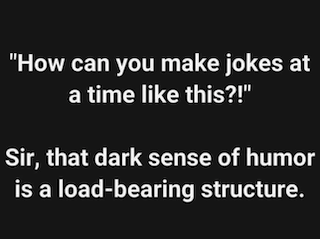
In my book, Rise of the Machines: Human Authors in a Digital World (ebook now on sale for .99), I talked about Keven Kelly’s post about 1,000 True Fans from 2008. I wrote Rise of the Machines to be evergreen. The point of the book is to teach you how humans think and why they like what they like.
Why did I write it?
Because I knew social media was going to be one more thing we authors needed to do if we wanted to be successful. If we had to build an audience, then I wanted y’all to know how to build and what to focus on.
Hint: NOT BIG NUMBERS.
Back then, the Big Six was still around and their marketing people were giving terrible advice.
Publishers and agents became fixated on vanity numbers. I worked with a lot of mega-authors who were household names. They were apoplectic and panicking because Such -and-Such had 100K followers and they didn’t.
It is really hard for most people to grasp that big numbers aren’t the be all and end all. What matters is how much the people who DO follow you CARE. What good does a million followers do me if none of them ever engage in what I post?
To be a successful creator you don���t need millions. You don���t need millions of dollars or millions of customers, millions of clients or millions of fans. To make a living as a craftsperson, photographer, musician, designer, author, animator, app maker, entrepreneur, or inventor you need only thousands of true fans.
Kevin Kelly
Kevin Kelly said this sixteen years ago and it is still true today. In 2019, influencer Arianna Renee had an Instagram following of 2.3 million followers and she still couldn’t sell 36 t-shirts to launch her clothing line. She only needed to mobilize 0.000013% of her following and couldn’t do it.
This isn’t to depress you (I hope) as much as it is to encourage you. It is far better (and easier) to dig deep than spread wide.
Using Word Clouds to Build
If you haven’t read the last branding post, I strongly recommend you do because—as promised—today is more of a workshop.
I first want to point out that everyone has different skills, budgets, lives and likes. The whole reason I took a detour from writing to even teach branding is I wanted authors to have time left to do the things they loved to do most…to create. That said, our job isn’t all writing. We have editing, revisions, taxes, research, and did I mention taxes?
Suffice to say I would LOVE to have a formula where everyone only did things they wanted to do. I am good, but not that good. Secondly, if we think we are going to open a bunch of social media accounts and just automate and expect fans to materialize? That isn’t going to happen. It might feel like we have a brand and a platform, but there isn’t any engagement so there will be little loyalty.
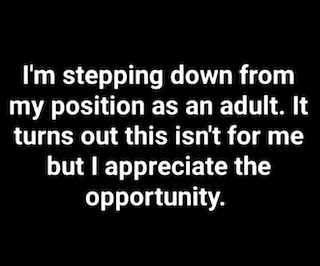
Most likely we will get relegated as white noise. But, for those of y’all who have followed me any length of time, y’all know how I feel about automation. I don’t like eating spam, so I don’t serve it.
Why I came up with the word cloud is it gives you a better idea of WHAT and HOW to build and WHERE. Play to your strengths. The best social media platform to build is the one you will USE.
That said, too many writers hop on social media and our brains vapor lock.
I am a writer…so…I’ll talk about….writing.
Y’all ever had a relative, acquaintance or colleague who only ever talked about one thing ever? I had an uncle who only ever talked about sports. Despite him knowing I could not care less if baseball fell off the planet, it was all he talked about.
How many of y’all here enjoy hanging out with those people?
Brands are EMOTION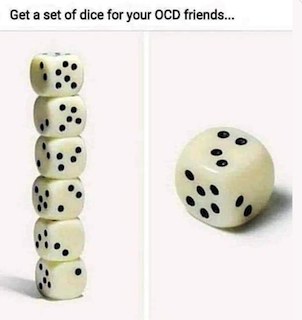
Whenever you do any kind of branding, the key is figuring out the overall emotion that you want to underpin everything. Advertisers have been doing this for over a century.
Like a good neighbor, State Farm is there.
What’s riding on your tires?
A diamond lasts forever.
Just Do It
In just a sentence, these brands convey the major emotional through-line that hooks people first. Obviously there is a lot more to these brands than just the one line, but who cares? If Nike sells tennis skirts or wristbands it is all powered by the call to get off our a$$es and do it!
Whether we like it or not, people will feel the same about us and our writing. The key emotion I wanted everyone to feel with me and my work is “safe.” It is why I named my first book We Are Not Alone: The Writer’s Guide to Social Media. I could have named my book Marketing for Writers but I would have rather thrown myself in traffic. WHY? Because most of us would rather throw ourselves in traffic than do this marketing stuff.
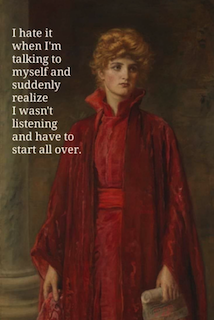
But since I knew we HAD to do it, at least we didn’t have to go it alone. It’s why I work to use so much humor and make fun of myself. There is no boneheaded idea you have I probably didn’t have first…but of course I believed it was GENIUS—until it blew up in my face like a “present” from ACME.
We (You) Are Not AloneYet, whether I am talking about fiction, branding, life in general, the core emotion is “this” is a safe place to be a hot mess. And that actually does bleed over into my fiction.
In The Devil’s Dance (ebook also now on sale for .99), Romi Lachlann did everything right and it still fell apart.
Romi grew up white trash in a tiny town on the road to nowhere. She ���escapes��� and gets her education and a premium job in tech sales���only to be left holding the metaphorical bag when her rich fianc�� pulls an Enron-like scandal, disappears, and leaves her as the FBI���s prime suspect.
Broke, blackballed and out of options, she has no choice but to slink home, defeated and humiliated, to her Jerry-Springer-crazy-as-a-bag-of-frogs family���and then she and family run afoul of a cartel.
Whether y’all read my goofy blogs here or my fiction, it is pretty clear I am remaining true to my brand.
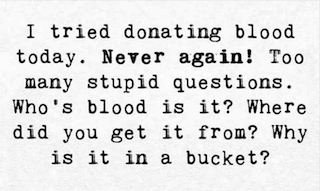 See?
See?So that is what I would like to posit to all of you reading. What do you want other to FEEL when they see your name, read your posts, your blogs your books, etc? Because while we might post on all kinds of topics, depending on what kind of social media platform we choose to use, there will still be a certain flavor to what we post.
Kind of like our friends. We have the funny friend, the serious friend, the super mom, the sport friend, whatever…but that doesn’t mean that is ALL of who they are. When we have friends, ideally we talk about a lot of other things and experience the entire spectrum of emotion. If not? That is a pretty shallow friendship.
Our goal is to replicate that “emotional experience” on line, because whether I like it or not? Most of the people we know, like and bond with are going to be online.
Build the Foundation
The word cloud gives you not only a place to start the conversation, but the longer and more robust the cloud, the more accurate a profile you will have of your potential fan (the person most likely to gravitate to you and thus your books).
I asked y’all to submit word clouds to use as examples. I will do my best, but I will reiterate that the LONGER and more detailed the cloud, the better the results. But, I get it. It was a big ask and I am super happy a couple people were willing to be vulnerable.
What I like to do with the word cloud is to come up with that I call a branding log-line. It serves as a theme for the feeling you want to give your audience. Sort of like your own Diamonds are forever. I might not have We are not alone plastered everywhere, but if you look at the lion’s share of my content, the fingerprints are there in the way I build.
If you want to post your log-line as part of your website or blog? Go for it. Visitors will know what to expect.
Example #1 Deborah Ademola:Romeo & Juliet, Hamlet, Barbara (Faroese tragic romance), Pride and Prejudice, Persuasion, Titanic (1997 movie), Barbara (1997 Danish movie adaptation), The Fellowship of the Ring, autumn, winter, blue, pink, purple, black, A Series of Unfortunate Events, The Office (USA), Canaletto paintings, Monet, Renoir, watercolour landscapes, Sherlock Holmes, bread-making, soap, luxury hand wash, hollyhock, verdana, roses, hoards kalanchoe plants, crocuses, snowdrops, Soap & Glory lotion and hand cream, Foo Fighters, Jimi Hendrix, Robert Johnson, too much music to count, lives on Spotify and YouTube, Japanese ukiyo-e woodblock prints, spagetti and tomato sauce, A Christmas Carol, Columbo, Sweet Home Chicago (Robert Johnson), Little Wing (Jimi Hendrix), relearning Chinese, Qin Empire Alliance series, obsessed with etymology, loves writing by hand, obsessed with medieval European calligraphy, also Chinese and Japanese calligraphy, qigong, obsessed with German rom-com Isi und Ossi, lifelong aficionado of Baroque music, Bach is the best!, always reading about five or six books at a time, walks almost everywhere, Resolve (Foo Fighters) almost brings me to tears, obsessed with Paleozoic and Mesozoic eras
Looking at this cloud, I could pull out…
Debroah Ademola: To Thine Own Self Be True
Deborah Ademola: But Here We Are
Deborah Ademola: Concrete & Gold
Deborah Ademola: All Roads Lead Home
Deborah Ademola: Nothing Left to Lose
Deborah Ademola: No Roses without Thorns
Deborah Ademola: Tiptoeing Through Time
Deborah Ademola: The World as a Canvas
Deborah Ademola: Garden in My Soul
Deborah Ademola: Pride & Prejudice in the Paleozoic
Deborah Ademola: One Rainy Wish
Once I have a log-line to work with, see how the content almost creates itself? All of these can be as broad or narrow as Deborah wants them to be. When we have just a tiny bit of a border to build in, that is when creativity kicks in.
She can look to her cloud and just be…herself. When on-line, if she simply talks and posts about the things she enjoys, other people who connect to those things will find her. Since people generally buy from who they know and like this is a good way to filter through the gazillions of people and find her people.
Example #2 Cherlyn Gatto:Classics like Oliver Twist, Pride and Prejudice, Great Expectations, and The Lord of the Rings, Movies like The Bear, Gilmore Girls, This is Us, The Firm, Edison bulbs, kayaking, biking, all things melancholy, edgy, and redemptive, baking bread, farm life, sunsets, night skies, bonfires, warm blankets, cozy socks, Instagram reels of babies and puppies and surprise bears and crazy falls, The Monkees and 60s classic rock and Christian worship bands, dark chocolate, Starbucks Chestnut Praline Lattes at Christmas time, football games, rustic country anything, horseback riding, long car rides and road trips to anywhere, decorating Christmas cookies, thundershowers, sunflowers and meadows, definitely Apple over android and Starbucks over D&D, editing versus the blank page, fiction more than reality, days that open without commitments, approval from others, scheduling and organizing but not following through, wet earth in springtime, gravely voices, when my son sings in his band, ice water with lots of lemon, pine candles, fires in the hearth, corn hole and badminton and any game I can win.
Cherlyn Gatto: God Only Knows
Cherlyn Gatto: Murder, Mayhem and Cozy Socks
Cherlyn Gatto: For What It’s Worth
Cherlyn Gatto: Bad Moons and Bonfires
Cherlyn Gatto: Starry Nights and the Sudden Drop
Cherlyn Gatto: The Game of LIFE
Example #3 Barbara Meyers:Family. Books. Reading. Fiction, Thrillers, suspense, mystery, sometimes ���big��� romance or ���women���s��� fiction. Bible, spirituality, prayer, observant, exercise, blue, salty snack foods. Raspberries, yogurt (vanilla), granola; dogs, walking, home improvement shows, cooking shows; Bourne movies, grandchildren, tee shirts, shorts, writing fiction; TikTok, psychology, human nature, personal growth, listening, cards (greeting and playing); kindness, friends, pens, journals, ideas, games, bubble baths, healthy, aesthetics, flipflops; Holidate, CJ Box, Nick Petrie, Robert Crais, Sandra Brown, Jane Casey, Claire McGowan, winter (in Florida, especially); ADD, weak follow through, Suduko, distracted, disorganized, poor career and business management ability; resists learning new things. Don���t bore me with details or directions. Quotes. Stand-up comedians, humor, laughter, smiles, adventures.
Barbara Meyers: The Rest is Just Details
Barbara Meyers: Leap of Faith
Barbara Meyers: Leap of Fai–NOPE!
Barbara Meyers: Spies, Lies & Flip Flops
Barbara Meyers: Precious Things
Barbara Meyers: Cloud on My Lips
Barbara Meyers: Got Sand in My Sanity
Example #4 Kathleen SaundersI love reading, writing, my family and pets, all animals (the reason I���m vegetarian), the outdoors, our cottage at the lake, watching wildlife, walking, gardening, swimming, riding, teaching, continuing to learn daily, improving my French, travelling (especially Europe), The Seven Deaths of Evelyn Hardcastle, How to Stop Time, The Midnight Library, anything by Kate Atkinson, Ann Cleeves books, The Children of Men and anything by P.D James and Ruth Rendell, music (everything from Joe Cocker and Roy Orbison to Taylor Swift and Bruno Mars), Lost, Survivor, American Idol, and old movies, landscape paintings, and anything with an interesting use of colour especially with subjects from nature.
***Kathleen I am guessing at your last name so correct me if I am wrong.
Kathleen Saunders: When the Night Comes
Kathleen Saunders: Face in a Cloud
Kathleen Saunders: Sunshine on My Shoulders
Kathleen Saunders: Time in a Bottle
Kathleen Saunders: At the Stroke of Midnight
Kathleen Saunders: A Place in This World
Kathleen Saunders: Life on a String
Kathleen Saunders: Hands in the Dirt, Eyes on the Skies
Build With Attitude
A BIG THANK YOU to everyone who was brave enough to put up a sample cloud. Usually when I do this one on one, I will send back for a longer cloud or some more specificity in the words. These were a bit on the short side for my preference, but I am still in awe of your courage.
If I nailed it, great! If not, then y’all at least see what I am doing here.
Song, book and movie titles are great fodder for the imagination and you can’t copyright a title. If you have a song that you believe is your theme song? See if you can work with it. Just avoid the lyrics because musicians—rightfully—are very territorial.
The cool thing about this log-line is you can change it out. It is supposed to be a guideline, not a noose. Like an outfit, it impacts how you might present yourself. Sundress/suit versus a military uniform.
Again, to build a brand, just talk about the things you are passionate about. If you love kittens? Great! Animal videos? Sure! That is fantastic content people love to interact with and share. Same with funny memes. Or nostalgic posts. There are certain kinds of content that by its nature, have better “legs” and are better material to build with.
We can dive deeper into how this all works on line later. If you really want this expounded, pick up a copy of Rise of the Machines because I have a whole section on this and the book is .99.
But, I hope you can see that, with a word cloud and a log-line, you can take an honest inventory of what kind of social media is a good fit. What social platform is the best for building an audience? The one you ENJOY.
The entire point of this is learning ways to begin the conversation in an authentic way. Then, you’ll become the author people happen to know and like (and they trust your content). You have your people and, unlike buying email lists or spamming people, they’ll want to be there.
What Are Your Thoughts on the Build?Even if you don’t use the word cloud to create a log-line, do you see how it is a really useful tool for not only starting the conversations, but to keep them going? While genre might impact the log-line, it doesn’t have to. Our log-line really is more reflective of our voice.
I can think of fantasy that is super serious The Lord of the Rings versus super silly/campy Army of Darkness. Both stories play out in a medieval setting but aren’t remotely like each other.
Whether we write romance, horror, thrillers, mystery, that is more of a side point. Readers will gravitate to our unique lens that we bring to the creative table. That’s why I don’t like us fixating too hard on the books themselves. Your fellow humans can surprise you.
They might HATE romance, but they love your romance novels. I have had people who never read thrillers or horror, but they gave the genre a chance because I wrote it. And they’ve told me they’ll likely never read another in that genre, but they loved mine. Sometimes, they didn’t even read them because, while they don’t like that genre, they have friends or family who DO…and they give my books as gifts.
Trust me, there is almost no greater compliment.
Ultimately, we don’t have to sell to everyone. Who cares if a person buys only one book, so long as it is YOUR BOOK? And if that person likes you and your books, that is a great step toward that super fan who’s positively EVANGELICAL about everything you produce. It is easier to build with friends.
The SUPER FANS are who you want to invest your heart in because they give theirs freely in return.
The post How to Build an Audience, No Duct Tape Required appeared first on Kristen Lamb.
September 26, 2024
Culture, Conflict & Creating Fresh Stories People LOVE

Ah, culture. One word that can encapsulate so much. It’s nice and bendy, too, which is fabulous for story ideas (or for injecting more conflict in a story that feels flat). Put more than two humans together and somewhere, somehow they will find something to fight about.
They might be from the same country, but a different region (a New Yorker and a Texan) or from the same state but different part (Manhattan versus Buffalo). Even if they are from the same city, they might have a different heritage (Latino versus German). Maybe conflicting occupations. Think engineer and yoga instructor.
There are a gazillion ways that we humans can stumble into conflict. Age, sex, race, religion, socioeconomic status, education, hobbies, political views, on and on and on invariably impact our perspective. It’s a clash of cultures, so to speak.
One of the main reasons I love the idea of a “clash of cultures” is because this allows us (Author God) to create tension that feels organic and begs for us to keep turning pages (or watching). In fact, it is a long time staple of some of the most successful stories.
What is literally every Hallmark movie? The workaholic executive (insert Type A high achiever here) meets the down-to-earth organic grocer (insert chill Type B/recovering Type A here). A crowned prince falls for the everyday girl. Billionaire falls for the wedding planner. Heiress falls for the activist. Or flip that.
Why do we love these stories? Because they are fun. One world trying to understand and work around the other, butting heads, but then finally coming together at the end and being better for knowing one another.
Audiences cannot get enough of….
The Odd Couple Dharma and MIL, Kitty…
Dharma and MIL, Kitty…This trope works wonderfully for romance, comedy, romantic comedy. You guys remember the show Dharma and Greg? For those who have followed my blog for a while, I hammer on log-lines. Can you tell us what your story is about in 1-3 sentences?
You can almost SEE the book/series/movie with just that snippet.
How is this for a great log-line?
A free-spirited yoga instructor finds true love in a conservative lawyer and they get married on the first date. Though they are polar opposites, he fulfills her need of stability and she fulfills his need of optimism.
via IMDB
You can see the delicious conflict right off the bat with just the couple, but what about their respective cultures?
Dharma’s father is a paranoid pothead who doesn’t trust the government and her mom is an Earth mother hippy who reads chakras and cures all that ails you with a crystal. Her parents are very bohemian. Contrast that with Greg’s parents, who are elite, moneyed, and politically conservative, and….
…the jokes practically write themselves.
Notice in that wonderful IMDB log-line, whoever wrote it goes on to explain why this odd couple works. They each have something the other party needs. Therein lies the rub. We humans can sense what we need intuitively long before our brains catch up.
Very often we are attracted to the very people who make us crazy. We gravitate to the culture that makes us bonkers. Frankly, I think it is why most writers are married to an engineer or an engineer-type personality.
***You know who you are.
Whether it is Green Acres, The Odd Couple, Dharma & Greg, The Big Bang Theory, or every Hallmark movie ever made, it WORKS.
And culture is a FABULOUS area with a lot of unexplored terrain. Guess what? This trope also works for mysteries (Sherlock Holmes), science fiction (Star Trek) psychological thrillers (Fight Club), action movies (The Bourne Identity), kid movies (Finding Nemo), fantasy (The Witcher) etc.
The Fish Out of Water & Culture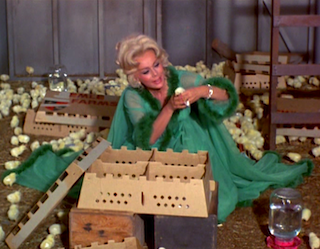 Courtesy of “Green Acres”
Courtesy of “Green Acres”We all recognize the “fish out of water” story, right? Whether it is a rags to riches (Goodwill Hunting) or a riches to rags (Uptown Girls), or a little of both (Trading Places) audiences cannot get enough. And it works for every genre from campy comedy (Green Acres) to action-thriller (Safe House).
I recently discovered a new favorite movie, The Farewell. If this movie doesn’t make you cry a little…you might not have a soul. When it comes to clash of culture this story hits on ALL cylinders and I promise NOT to ruin it.
A Chinese family discovers their grandmother has only a short while left to live and decide to keep her in the dark, scheduling a wedding to gather before she dies.
VIA IMDB
Though there is plenty of drama, there’s also loads of laughs. Not only do you have a clash of culture between young and old, but the literal clash of cultures between…well, cultures.
Granddaughter Billi is a typical Chinese-American girl living in NYC with her immigrant parents. Though Billi lived in mainland China when she was a child, she’s been in the USA so long she is thoroughly American.
Her parents try to act as a bridge between the old country and new. When Billi’s grandmother gets a diagnosis of Stage Four cancer, Billi is utterly mystified why no one in the family will tell her. Yet, Billi’s mother says it perfectly:
Culture ShockChinese people have (a) saying. When people get cancer, they die.
Lu Jian in “The Farewell”

The family plans a trip to China, telling the grandmother that the spur of the moment gathering is for a wedding. Secretly it is a way they can all see her one final time before she dies. Billi is not welcome to come along because the family is afraid she will blow it. Then, add on TOP of that family that has immigrated elsewhere. One of the uncles moved to Japan and his son (groom) has a Japanese bride.
All of this makes for a beautiful, heartwarming story that will make you laugh and cry and—regardless where your family is from—maybe hug them a little tighter.
As a young American woman, Billi is utterly unprepared for mainland China. This journey will alter the way she sees the world and those she loves. By the end of this journey she is better in ways she didn’t realize needed improving…and so are those around her.The Generation GapRegardless where we are from, our occupation, our gender, there is one conflict that transcends them all…AGE. This is true with siblings, relatives, bosses, or just LIFE. If there is an age gap, there is fantastic room to grow an amazing story.
Some of our most timeless stories capitalize on this trope. The Joy Luck Club (both the book and the movie) is a wonderful tapestry of three generations of Chinese women. In present-day the mothers and daughters seem to do nothing but fight. Why? The mothers only want what is best for their daughters. They were once young, too and they also saw their own mothers struggling with the same issues.
I tell you the story because I was raised the Chinese way. I was taught to desire nothing, to swallow other people’s misery, and to eat my own bitterness. And even though I taught my daughter the opposite, still she came out the same way. Maybe it is because she was born to me and she was born a girl, and I was born to my mother and I was born a girl, all of us like stairs, one step after another, going up, going down, but always going the same way.��
An mei from “The Joy Luck Club”
The moms want the best for their daughters and yet the daughters cannot seem to “see” anything but their mothers’ disappointment, disapproval, or disdain. The point of the story is to iron out the wrinkles that keep coming between two generations of women and make a way for a better future.
Mentors & TOWANDA!Who doesn’t love a good mentor/mentee story? The mentor is a mentor because that person has more experience and, therefore, is likely older. There is a generational gap and a culture clash. A great example is the movie Fried Green Tomatoes (based off the novel Fried Green Tomatoes at the Whistle Stop Cafe) .
Evelyn Couch is a middle-aged doormat who puts up with far to much bullsprinkles from her husband and family. When she meets a mysterious nursing home resident, they strike up an unlikely friendship. Ninny Threadgoode spins a tale (set in rural America in the 20s) about love, loss, life…and even some murder.
Over time, those stories serve as a beacon in the dark that leads Evelyn on a journey of self-discovery, evolution, and finally…empowerment. #BestSceneEver
The good thing, again, about a generation gap is that it works for all genres. Fried Green Tomatoes is a drama with elements of comedy. So is Steele Magnolias, The Karate Kid, and (the book) A Man Called Ove or the movie.
Though we wouldn’t, per se, classify any of these stories as a straight up comedy, they cannot help but make us laugh when generations collide.
Beetlejuice, Beetlejuice, Beetlejuice!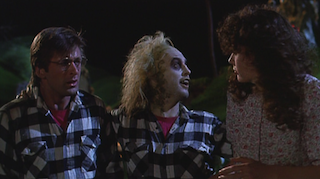
Talk about a story that also hits on all cylinders when it comes to the culture clash. Today, we will stick to the original Beetlejuice because the new one merits a standalone post.
It…is…AWESOME.
There are all KINDS of perspectives log-jamming with each other. The Living (the Deetz family) and the Recently Deceased (the Maitlands), edgy sophisticated NYC/versus L.L. Bean, teenager versus parents, dead people who want to be alive and a teenage girl who wishes she were dead. Everywhere you turn in this movie, there is conflict and tension.
Which is why the movie is still fantastic…34 years later.
Everyone wants something different, yet who they are/where they are from (perspective/culture) creates problems. Whether it’s the newly dead Maitlans who need answers yesterday. Or the overworked and long dead social worker from the other side, Juno who measures her schedule in decades.
Nothing comes easily.
Charles Deetz wants a rural escape, but his high-strung, neurotic wife needs to create…starting with his house. Lydia, the teenager who wants to disappear is the only one who can help the Maitlands, who want nothing more than to be SEEN.
And, if that weren’t enough drama, toss in a lunatic unemployed trickster spirit. Nothing like mayhem to generate some teamwork, right?
Can’t Have CULT, Without CULTure!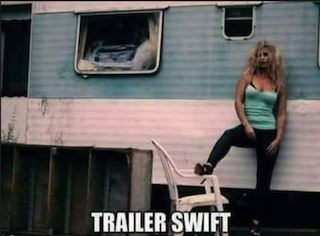
Culture is a word with a lot of variegated meanings. It can also be as broad or narrow as we want or need it to be, as you can probably tell from the wide range of examples I gave from virtually every genre. If you are trying to create a story that is “same” enough to resonate, but “different” enough to spark interest…try starting with a culture clash.
I used that technique to fix my first novel, The Devil’s Dance.
When I wrote my original story idea, all the beta readers…hated my MC. They loved all the supporting characters, but something just wasn’t connecting with the MC.
Sigh. *bangs head on wall*
My idea: Riley was a combat vet, recently home from Afghanistan who’s family unintentionally runs afoul of a major cartel.
Problem was? According to the beta readers, though they liked the idea, my MC wasn’t relatable.
I rethought my approach, shifted from third-person close to first-person and then used my campy blogging voice.
The Devil’s DanceInstead of Riley Romi being a bad@$$ but damaged character who was more than capable of handling a cartel, I changed her into a hot mess fish-out-of-water up against impossible odds (and that’s just her FAMILY).
Romi grew up white trash in a tiny town on the road to nowhere. She “escapes” and gets her education and a premium job in tech sales…only to be left holding the metaphorical bag when her rich fianc�� pulls an Enron-like scandal, disappears, and leaves her as the FBI’s prime suspect.
Broke, blackballed and out of options, she has no choice but to slink home, defeated and humiliated, to her Jerry-Springer-crazy-as-a-bag-of-frogs family…and THEN she and family run afoul of a cartel.
To make matters worse, the FBI thinks she’s making a run for the border (not Taco Bell).
LOADS of worlds colliding that makes for a hilarious, nail-biting read (if I do say so myself *gets cramp patting own back*).
See how I had a story that was “meh” but was able to save it simply by pivoting a little toward the zone with the most conflict? Culture saved my story idea. Though I kept the same kernel of an idea—a small town with a dark secret, a family up against the cartel—the story was 180 degrees different and a million times better.
What Are Your Thoughts?Do you see how culture is far more influential that a lot of people might imagine? Nerds versus Normies? Old versus young? The jaded versus the neophyte? Can you see how just even on a micro-scale, you could inject more dramatic action, tension and subtext by simply playing up each character’s cultural perspective?
What are some other movies, books, or series that you now see executed the culture clash with particular brilliance? In a world being deluged by same old same old, what are some crazy cultures you might be able to force together in a story? Same…but DIFFERENT?
REMEMBER: Last post How to Create YOUR Audience: Identify, Connect, Convert, we talked about how to make the author brand more manageable and authentic. How do you connect to then curate your unique audience? I am still eager for victims volunteers for when I post on what exactly we do with that word cloud. This is to help you work smarter not harder. Though my other personalties are happy to help, this is a sweet chance to get free consulting for those brave enough to post their word clouds in the comments.
Remember the longer the cloud the better and also tell me what GENRE you write.
Until next time!
The post Culture, Conflict & Creating Fresh Stories People LOVE appeared first on Kristen Lamb.
September 20, 2024
How to Create YOUR Audience: Identify, Connect, Convert

Audience. How can we connect to an audience (readers) who will love our stories enough to buy, support and spread the word? This is the ever-present challenge on every author’s mind.
If it isn’t, then it should be.
The post before last, we had a big group hug and sang a little digital kumbayah in my post Help! I’m Having a Mid-Write Crisis! We need a pep talk/reality check every now and then to keep going because we are creative professionals. Many of us didn’t choose this life, it chose us. We aren’t going to be happy unless we are creating because it is part of who we are.
That said, if we are here for the long-haul, it is critical we identify, then connect with and curate our audience. You are not alone. Neither am I. Guess what?
We are also NOT special.
Whether is it art, music, theater, articles, fashion, jewelry, Netflix series, or novels, the hunt for the elusive audience has been a universal endeavor. No one has cracked the secret code for finding a guaranteed audience.
Okay no one except the people who write books called, “The Secret Code for Finding a Guaranteed Audience.”
Locating Our Audience
While locating our audience might seem rather daunting (it is), take comfort that it is also nothing NEW. Great news is what has been done before can be done…again.
Today, I am going to share a tactic I invented years ago and highlighted in my book Rise of the Machines: Human Authors in a Digital World. We are going to learn to do a Word Cloud.
Yes, I know this is a branding book that is eleven years old. I wrote the content to be what is called evergreen, meaning the principals I teach in it work no matter the age, time, or technology. Branding has never changed because humans don’t change.
Don’t believe me? Look at a pyramid then check out Instagram, Facebook, TikTok….
Lotsa CATS.
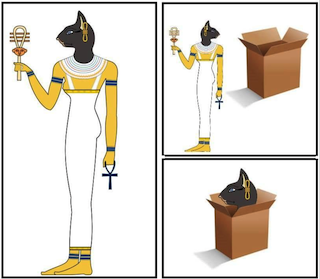
This is why RoM was all about understanding people. How to identify what they like, hate, love, loathe, are likely to share? It is NOT “The Secret Code for Finding a Guaranteed Audience” but it is possibly the “I Did All the Dumb Stuff So You Don’t Have To.”
While I can never guarantee anything, I can remarkably improve your odds.
Today, I am not going to talk about our product (the books). What I want to do is, hopefully, help y’all think about branding, platform and audience in a fresh way. This means we are ONLY going to do the initial step. If we want to locate our audience, seems only logical we figure out a way to recognize our people when we see them and vice versa.
Identifying Our Audience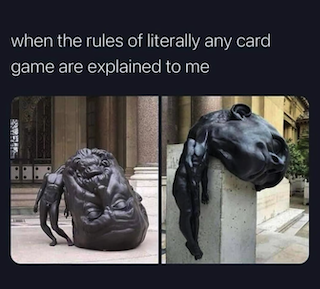
This might be a silly example, but before I married and became a mom, I was the auntie to a bunch of nephews, godchildren and all their friends. Though I loathe crowds with the power of a thousand suns, I loved being “Cool Auntie” even more. So, quite often, I’d take a whole gaggle of little kids to theme parks like Six Flags, Disney, the Fort Worth Zoo, whatever.
To keep me sane, we would all dress in some super bright identical color so that I could easily find them, and they could easily find me.
Believe it or not, this is similar to how all humans bond (all animals, actually). We like to find our people. Someone posts a funny meme, or wears an obscure band tee, or quotes some cult classic movie and, Did we just become best friends?
When it comes to marketing for books, you cannot approach it like you are selling toilet paper. Why? Who is NOT using toilet paper? All the ads, coupons and sales are meant to appeal to a vast group of people who’d already planned on buying toilet paper. Books, weirdly enough, are a totally different beast that demand a unique approach.
For brevity’s sake, I explain this more in:
Branding & Attention: Busy Brains in a Busy World
Before we expand on this, I just need to lay a leeetle more groundwork. I promise. It’s critical.
Getting Tribal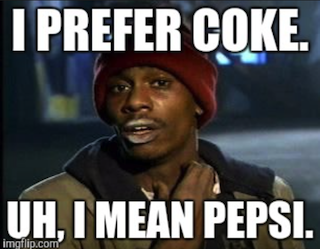
Remember the time that all those people who brushed their teeth with Crest mocked the Colgate users on Facebook? Or the folks who preferred Bounty paper towels memed the HELL out of those who bought off-brand on X? What about that time the YouTube video about Listerine users went viral?
Listed among the things that never happened and never will.
WHY?
In sales there are 2 kinds of purchases, low consideration and high-consideration. Low-consideration is like TP, paper towels, toothpaste, mouthwash, etc. Those marketing these products aren’t fundamentally trying to ingrain a new behavior in their customers. This is why price points, marketing and coupons work for low-consideration products.
High-consideration are a totally different beast. When it comes to a high-consideration purchase, we humans get positively TRIBAL.
Mac users versus Microsoft? Mustang versus Corvette? Louis Vuitton versus Chanel? Android versus iPhone?
Notice the Differences? Looks legit….
Looks legit….First of all, these products usually are VERY expensive. A cheap Walmart purse will carry my crap just as well as a Louis Vuitton. Notice, though that LV never holds a BOGO sale? Tiffany’s never has a guy dressed as a gorilla twirling a sign to get people in the store.
Why?
They don’t need to.
Want to start a fight? Tell an Android user your iPhone is so much better (or vice versa). Challenge your souped up Honda against a Mustang. Get a diehard Nike junkie to wear Adidas drip. Tell Dallas Cowboys fans they aren’t going to the Super Bo…never mind.
That’s just being mean.
***But Dallas Cowboys fans will wear the jerseys anyway, right?
Y’all get the gist.
How do books fit into this?
Sadly, roughly 93% of the literate population, if asked to rank “things they’d love to do in their spare time,” would rank reading a book down below doing their taxes and getting their teeth cleaned…at the same time.
As writers, we have to acknowledge that while our book might be cheaper than a tube of toothpaste, it costs what people have less and less of.
TIME.
We are asking people to part with money they don’t have to do an activity they believe they will hate for an average of 12-15 hours they don’t have…and pay money to do this AND tell others how awesome it is.
Easy peasy, right?Yes, and no. If we are aware that traditional marketing never has and never will sell books, then we don’t wast precious time and money. When it comes to books, we have to tap into the power of the TRIBE.
Show me a runaway success series (in print, on screen or both) and I will show you a rabid tribe ready to devour all things related: Harry Potter, Twilight, 50 Shades, Squid Games. Game of Thrones, The Last Airbender, Hunger Games, etc.
Audience: Who Are We Writing FOR?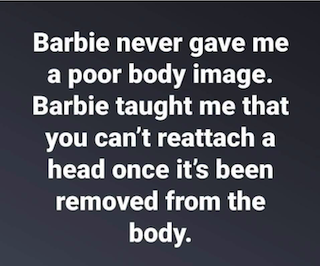
Now that I set all this up, hopefully this exercise will make more sense to you. Because I am pretty sure you’d love your future audience to argue over who’s your best character, maybe dress like them, buy merch, argue over who should have ended up a couple, etc. Right? Which people DO.
Hang around Dr. Who fans for 30…okay 15 seconds.
Now that you know what a tribe is and why you need one, how do you locate them? This is the technique I mentioned that is in my book.
I have never before blogged on this.Get out a piece of paper and hand write this exercise. I want to think about yourself. Pretend you are a jar of pasta sauce and we are listing the ingredients that make you, YOU. Add in favorite books, movies, seasons, colors, hobbies, songs, sensory phrases. Just word barf onto the page (not in neat columns).
The more words the better.
I am limiting here because I just need to do enough to make my point. Also, once you “finish” the cloud, keep adding to it. Heck, have friends and family help out, since they see aspects of you that you might not.
I am going to do three different examples to show you my point.
Author A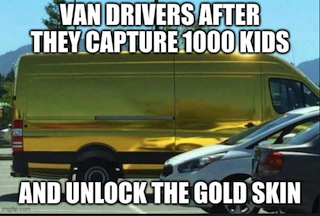
Science-fiction junkie, twisted sense of humor, Dune, Anime, Manga, graphic art, first-person shooter games, XBox, zombies, cheesy horror flicks, Army of Darkness, Fight Club, all things Mel Brooks, British comedy, Monty Python, Balls of Fury, Dodgeball, martial arts, Kung Fu movies, favorite holiday is Halloween, haunted houses, live in smartass t-shirts, Sabaton, heavy metal, high fantasy, Dungeons and Dragons, World of Warcraft, paintball with my friends, live music, off roading, microbreweries, building models, Ancient Aliens, no such thing as bad pizza, cat person, take in too many strays, Dr. Who, hate sports unless it’s jousting, Renaissance Festivals, ComiCon, DC, Marvel, Suicide Squad, HALO, Borderlands, live on energy drinks, all-night gaming, Squid Games, George R.R. Martin, Stephen King, Dean Koontz, Shogun, Jurassic Park, creating badass costumes, serial killer podcasts, love the smell of autumn bonfires, way too many hobbies, never organized, adulting sucks, only cookbook I use is my Beetlejuice Cookbook
Author B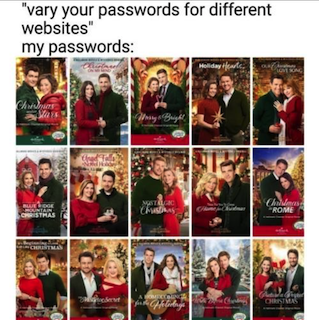
Believe in love at first sight, Hallmark channel, bubble baths, wine-tasting, retail therapy, gluten free, chocolate everything, baking, Instagram, TikTok, live in the gym, all things fitness, shoes and more shoes, makeovers, Christmas, decorating for the holidays, cooking big fancy meals for my family, crochet, knitting, adult coloring books to de-stress, hosting parties so can dress up, jazz, Michael Buble, Christmas carols, singing in the shower, smell of fresh flowers, taste of hot chocolate chip cookies, gardening, planting flowers in spring, watching the Westminster dog show, Pomeranians, practicing French because no sexier language, new body lotion, expensive perfumes, essential oils, love stories, movies that make me cry, Joy Luck Club movie and book, hate horror or anything gross, love a happy ending, wrapping Christmas packages, Bridget Jones Diary movie and book, Liane Moriarty, home improvement shows, Lifestyle podcasts, organizing junkie, color-code everything, hate a mess but kids so it is a happy mess
Author C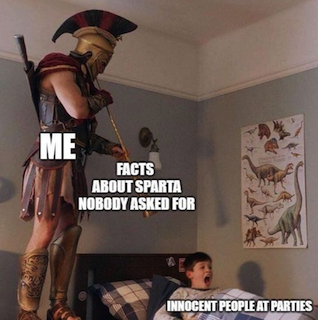
Voracious reader, love history, prefer in depth memoirs, British History, History of the Roman Empire, read all the Greek philosophers, Epictitus, Aristotle, Thomas Aquinas, Augustine, speak several languages, taught myself Mandarin for fun, member of the Japanese Club in my city, volunteer as a docent at the art museum, recently took up sculpting, love making pottery, watercolor, Japanese Gardens, Japanese Festival in the Spring, Shakespeare in the Park, hot yoga, making my own sushi, vegan, love the big city, museums, subways, Central Park in Fall, Tai Chi, prefer classical music, NPR, history podcasts, cycling, don’t own a car, built a totally green house out of all reused materials, minimalist, love Swedish furniture, run marathons, read the NYT, collect all the Pulitzer winning novels, foreign films, hate profanity, love etymology, not a fan of holidays but enjoy food festivals, watch shows about exotic cooking, inhale history documentaries when I watch television but usually I don’t, smell of pavement in summer after a rain
Profiling the Audience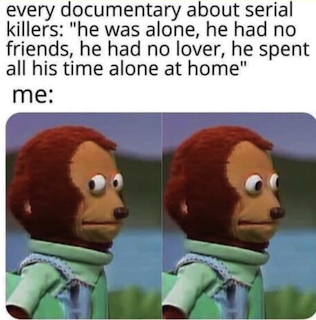
Okay so I just gave you profiles for three very different “authors.” What else did I give you? The most accurate picture of their audience humanly possible. Look at that cloud and you will see their potential audience (readers) in sharp relief.
Using a little bit of logic, I am pretty sure that Author A isn’t trying to win a Pulitzer with his literary novel featuring rogue samurai. Author C probably isn’t writing science fiction with loads of chainsaws and smart ass kitschy lines. Author B isn’t going to have profanity or violence.
Not to mention that—with Author B—everyone is going to get a happily ever after, whereas I don’t trust Author A not to turn everyone into zombies or Author C not to end the book with a tragic, but noble suicide/sacrifice for the greater good.
Notice that while they all share certain things in common (all writers, all love to read, all enjoy food, all listen to podcasts, all have creative hobbies, all enjoy animals) these authors are NOT IN COMPETITION…at all.
Even if there is some crossover, books are not so cost-prohibitive people cannot buy more than one (unlike a sports car). For the record, many of the items from all three clouds are ME.
Yes, I know. My humor get any darker and NASA gonna be studying it. But I also love cooking, crocheting, and primarily watch documentaries (and horror).
But I am not for everyone.
It is okay to be an oddball. A pattern will still emerge. That pattern is your people.
Trust me.
That is for another post, though.
Find Your Tribe So You Can Connect to YOUR Audience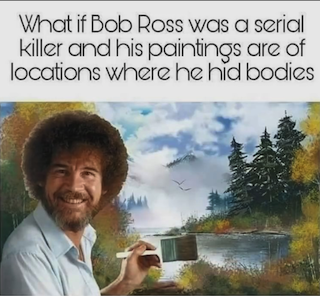
It is really easy to get overwhelmed in the digital age of publishing. Part of WHY we get overwhelmed is because are trying to reach everyone. We don’t want to reach everyone because we cannot possibly please everyone. Everyone is not our audience.
Not everyone loves my blog, or my writing style or my tacky memes or even me. *clutches pearls* I KNOW! CRAZY TALK! #Philistines
In all seriousness, I “get” that I am in-your-face-salty and my blogs are LONG. Why? Because I am in-your-face-salty and suck at being brief in life and on the page.
Duh.
Thing is, though, people who like my blogs (audience) also generally like my fiction, even if the genre isn’t their usual forte. If you read The Devil’s Dance, it is no shock I wrote it. Pick up a copy of WTH Did I Just Read? 13 short stories of the Hitchcock-ian variety, and I bet you can pick out which stories I wrote.
Why? Because I cannot create anything without leaving my unique fingerprints on my work. Neither can you.
Writers write from who we are (or even who we long to be). It is why we kinda freak the Normies out.
Tribes Make Markets Manageable Our platform/marketing can feel this way, too.
Our platform/marketing can feel this way, too.Today, we aren’t going to go into any deeper detail because today is all about figuring out who exactly you are writing FOR. Even if you are writing non-fiction self-help books, I hope you can see how each of these profiles offer a sense of style, tone and voice.
The Navy S.E.A.L self improvement book “Extreme Ownership” has a vastly different tone than Rachel Hollis’s “Girl Wash Your Face” and THANK GOD because a world where Jocko Willink is talking like Rachel Hollis is a parallel dimension that should not exist outside of a Rom-Com.
Jocko Willink isn’t getting up at 0330, checking in on X, and then crushing the weights with super sets with overwhelmed moms trying to fit back into pre-baby clothing. He also isn’t giving his audience tips on how to make the perfect holiday basalmic vinegar or get rust stains out of baby clothes.
Though I seriously just cracked myself up.
Jocko, please don’t kill me.
Jocko Willink and Rachel Hollis, while both self-improvement experts, are not even in the same galaxy when it comes to finding their respective audience. If they aren’t competing for the same audience, why would we?
They appreciate the type of person most likely to benefit from/enjoy their content and then the post and socialize accordingly.
Word Cloud and AudienceOnce you have your word cloud, you’ll have a far better idea which social media platforms might be a better fit, what kind of content to post, and ways to connect with people who share those connection points in your cloud.
This will make social media a lot more fun for all involved. Each of my imaginary authors can post about the things they love and enjoy and that will attract others who love and enjoy similar things.
Additionally, the content in that cloud has a MUCH higher chance of being shared. The more people share our content, the more algorithms give us favor, meaning our posts will show up in more feeds (and they don’t even have to be directly following us).
I can post an ad about my book being on sale and maybe a couple people (out of pity or fondness) will share. But the nature of the content is that it dies on the vine.
Memes? Funny videos? Inspirational videos? Open-ended discussions where people can have fun and engage? People loooove sharing that stuff and that helps you grow your platform logarithmically instead of linearly.
Eventually you bond, you talk, you klatsche and create your tribe.
What Are Your Thoughts?For anyone who cannot wait to know what you’ll DO with your word cloud, feel free to pick up a copy of Rise of the Machines. The book goes into a lot of the neuroscience behind WHY people like a brand or don’t. What is going on in the synapses that either makes a love connection or fizzles?
Technology changes, humans don’t.
If you DO write a word cloud, again, strive to make it as long as possible. Feel free to add to it. It should be a living document.
Y’all have any questions about the CLOUD? Anything I can clarify with a post?
I think the word cloud is a really fun exercise and ONLY FOR THE BOLD AND BRAVE, feel free to post your cloud in the comments and what genre(s) you write if you’d like to volunteer for medical experimentation to be an example of what we’ll be DOING with those clouds.
My other personalities only cooperate so far.
Think of it as a cool way for me to get attention comments and you guys to score some free consulting! Win-Win!
***Remember NOT a column. Do like my examples if you want to volunteer *smooch*
Oh, and iPhone is way better. Only serial killers prefer Android *runs away giggling*
The post How to Create YOUR Audience: Identify, Connect, Convert appeared first on Kristen Lamb.



